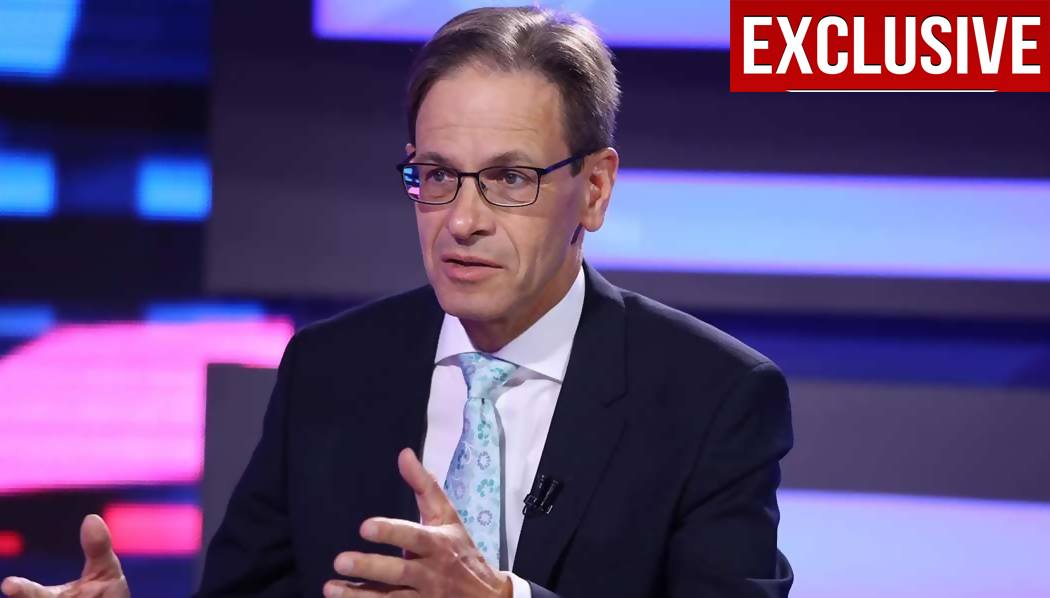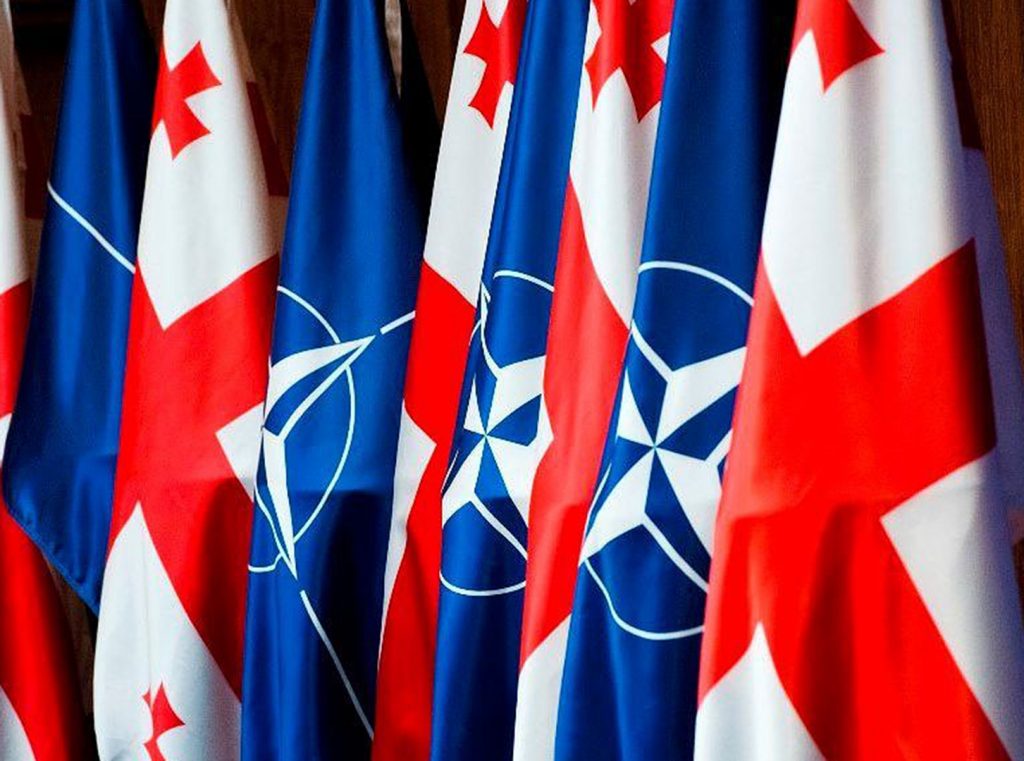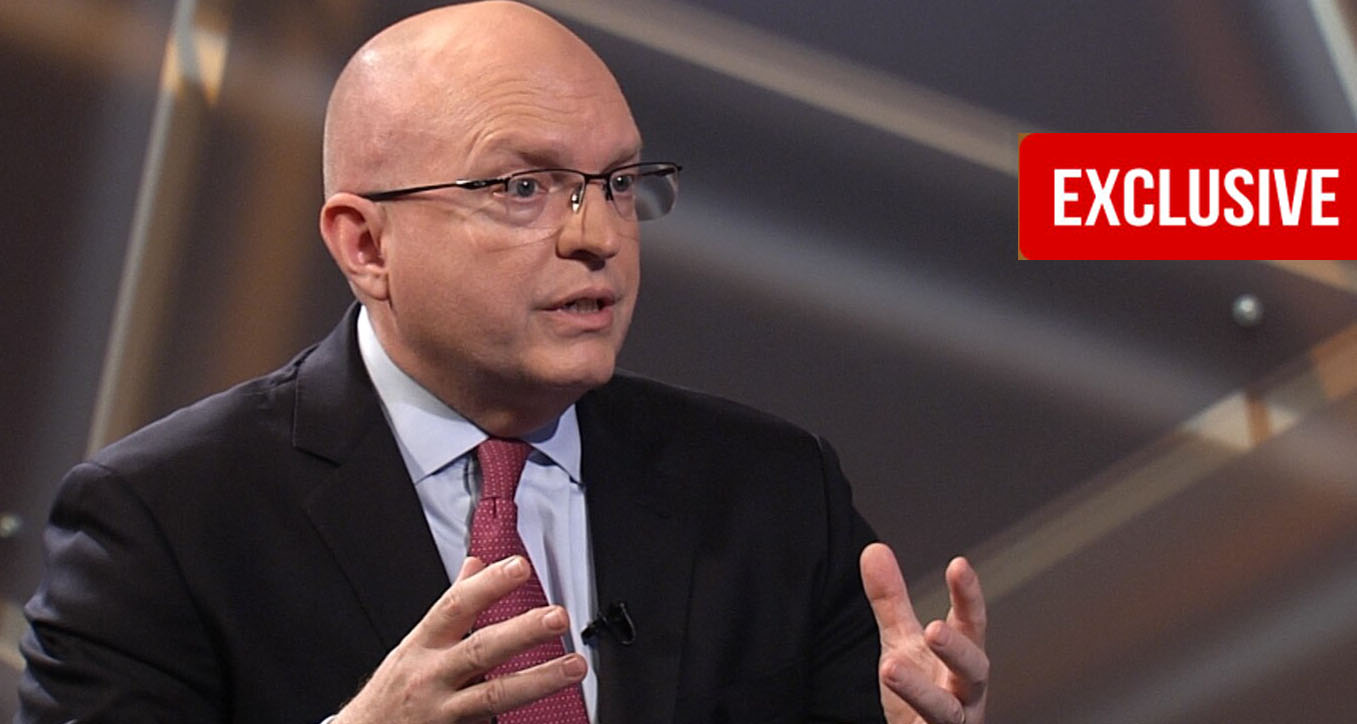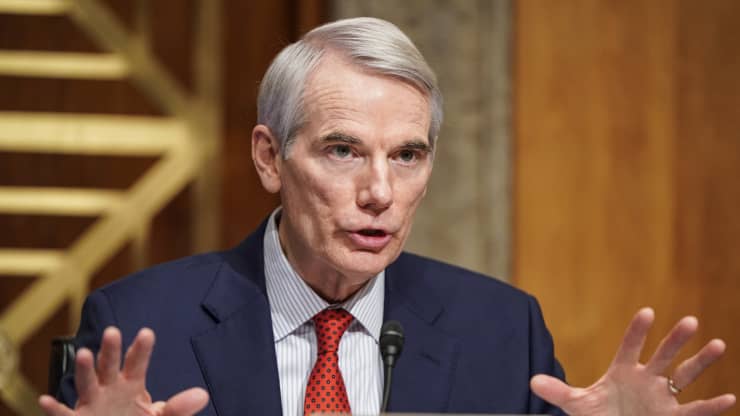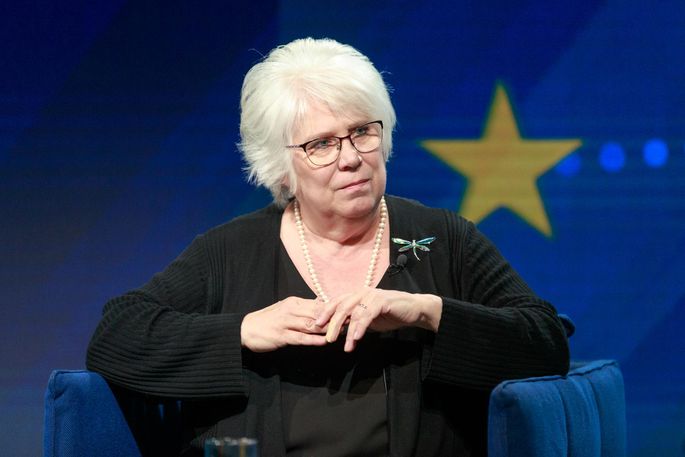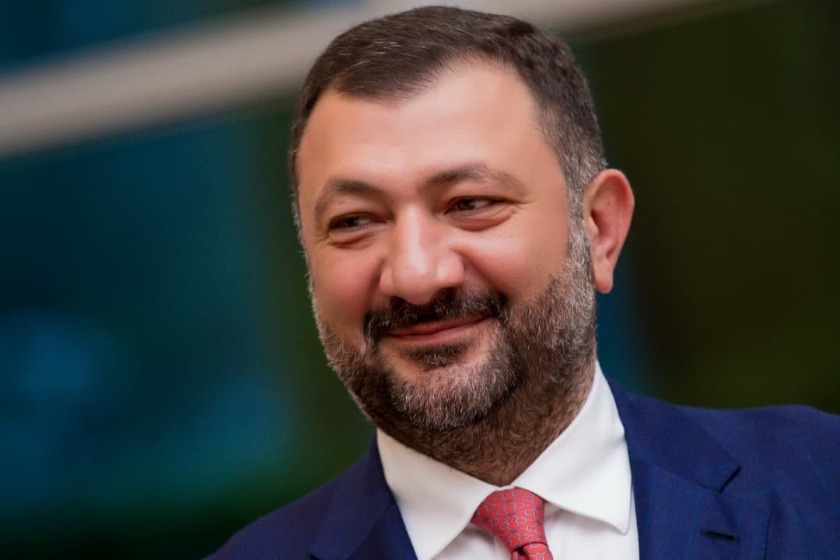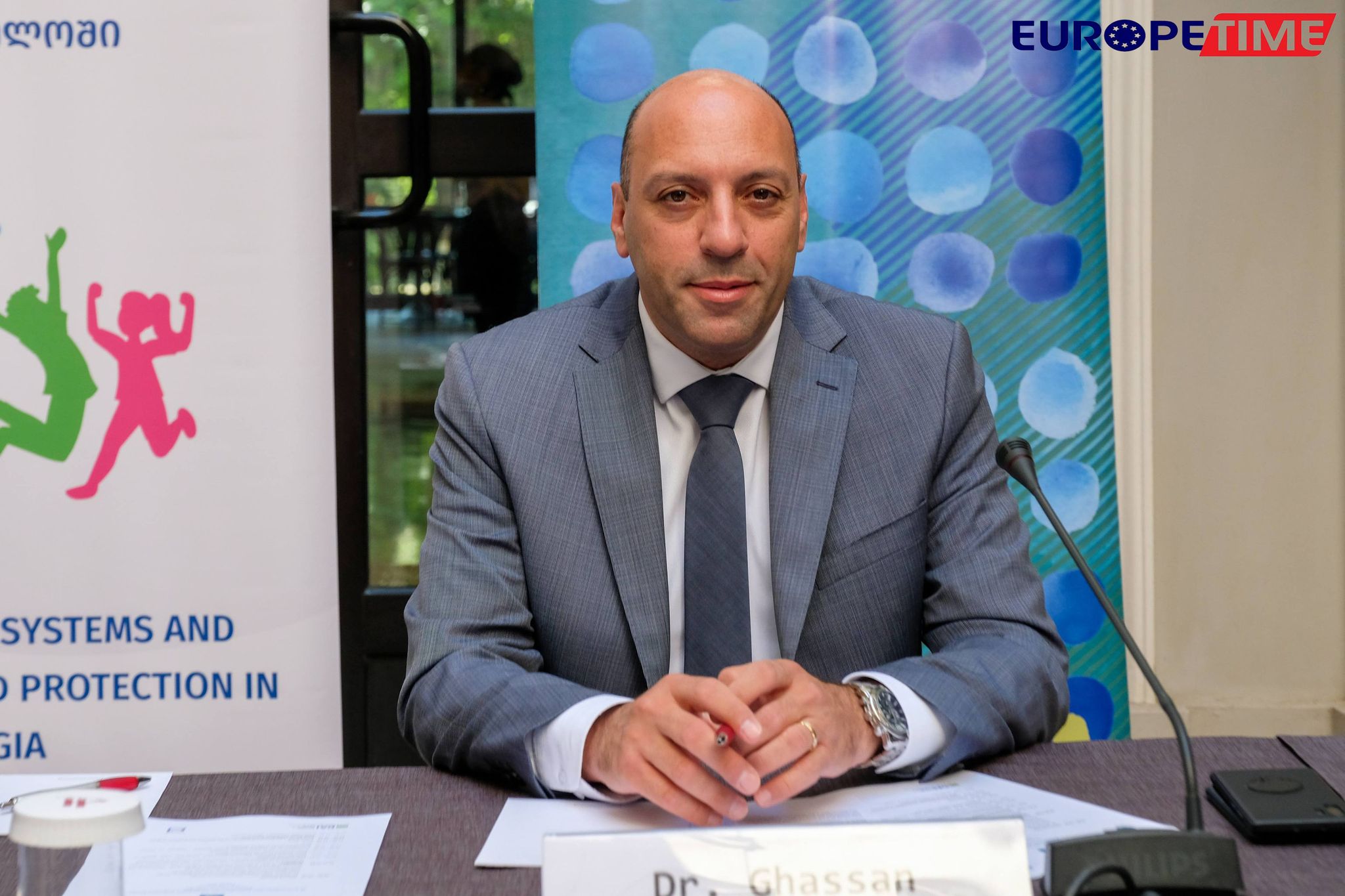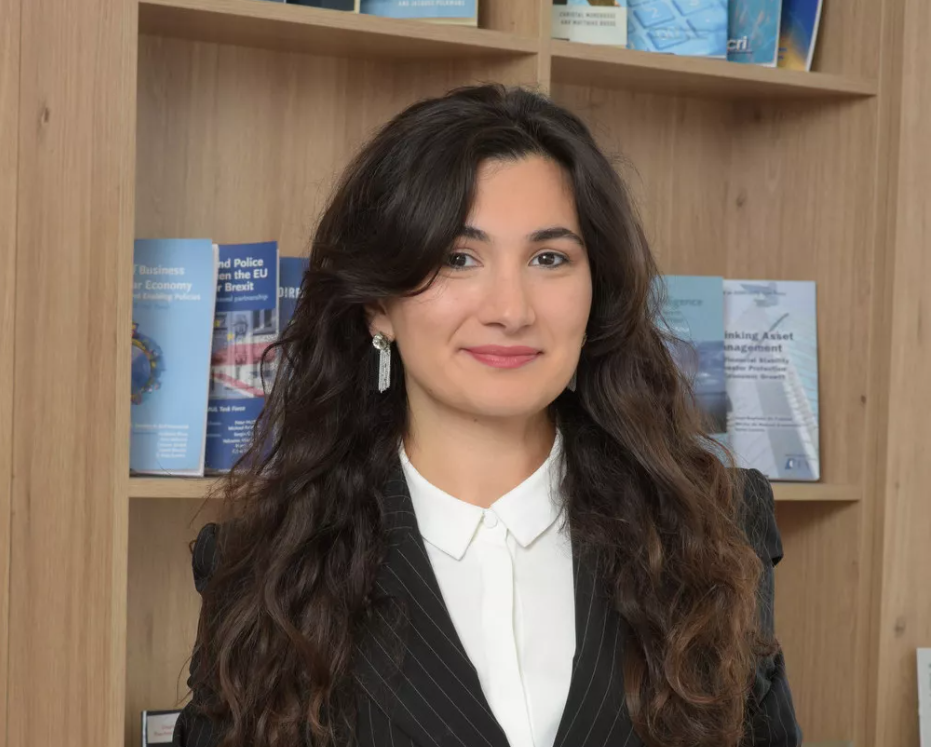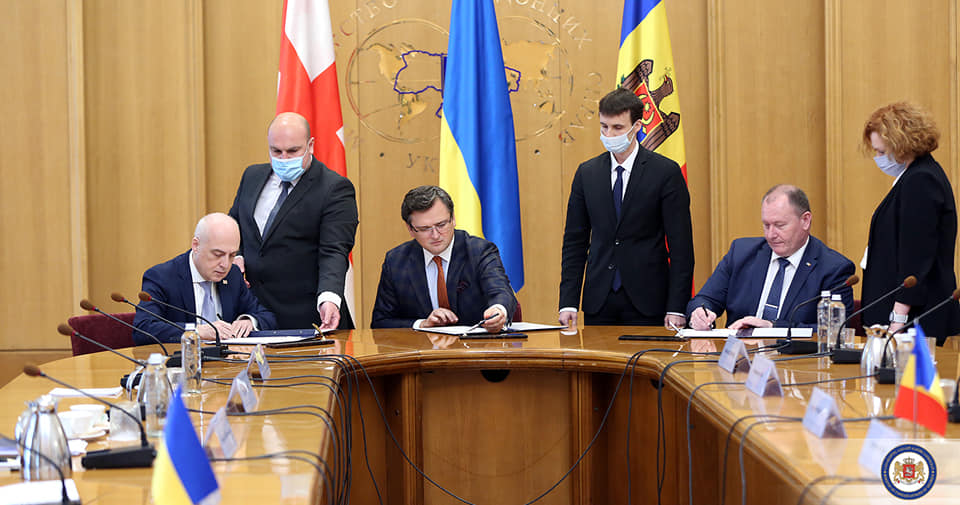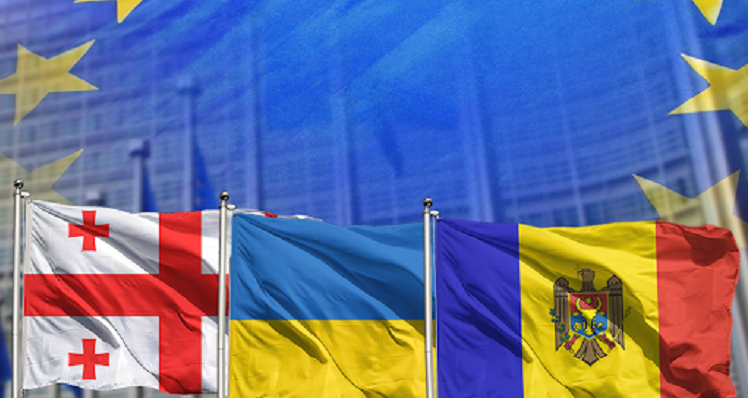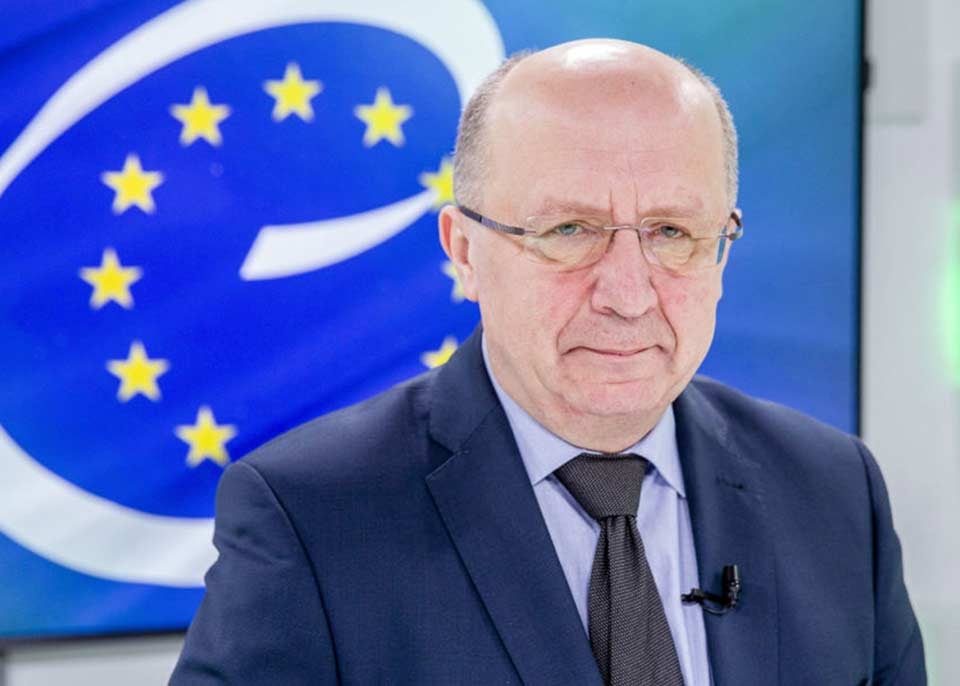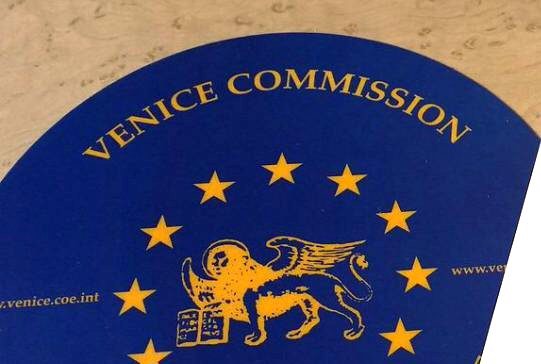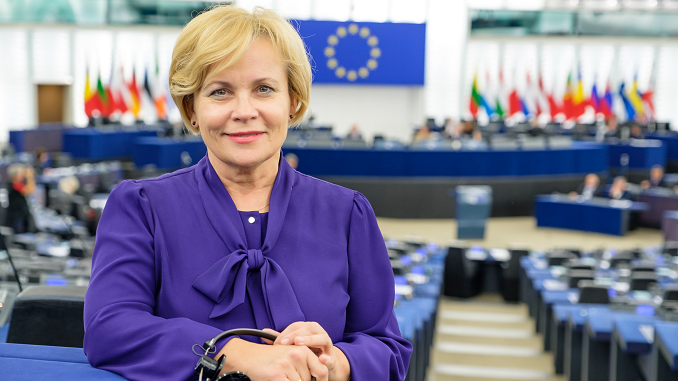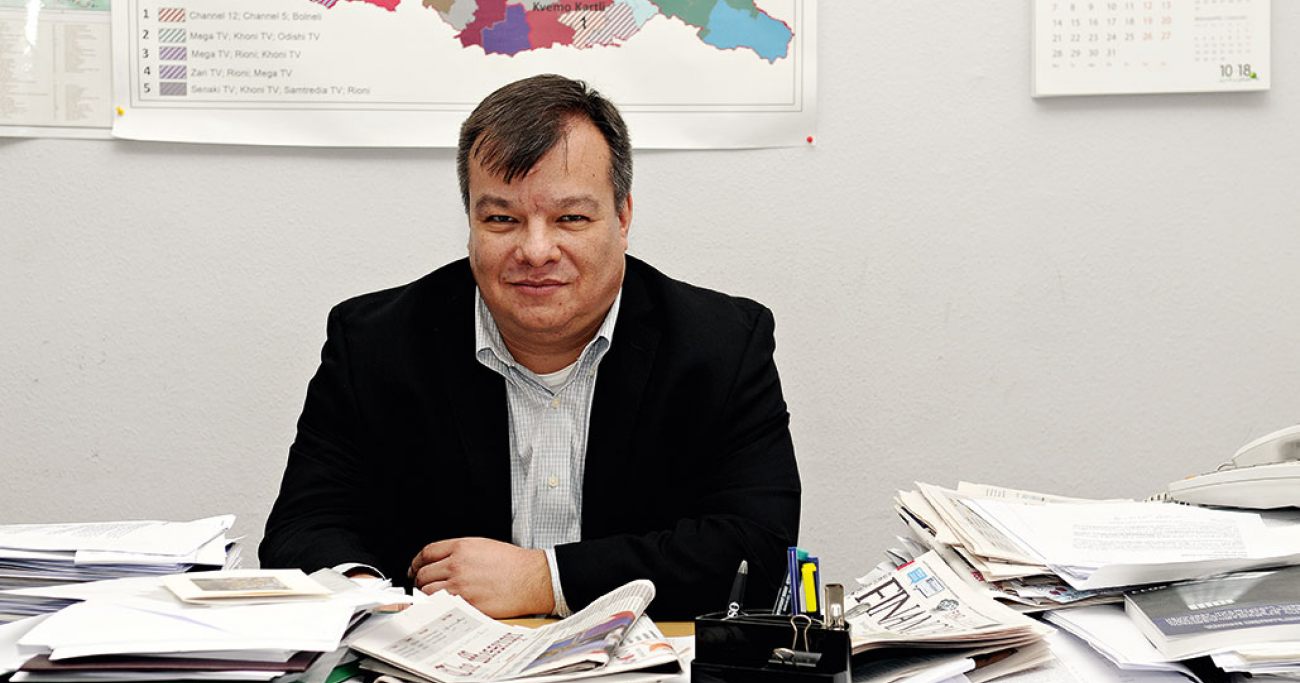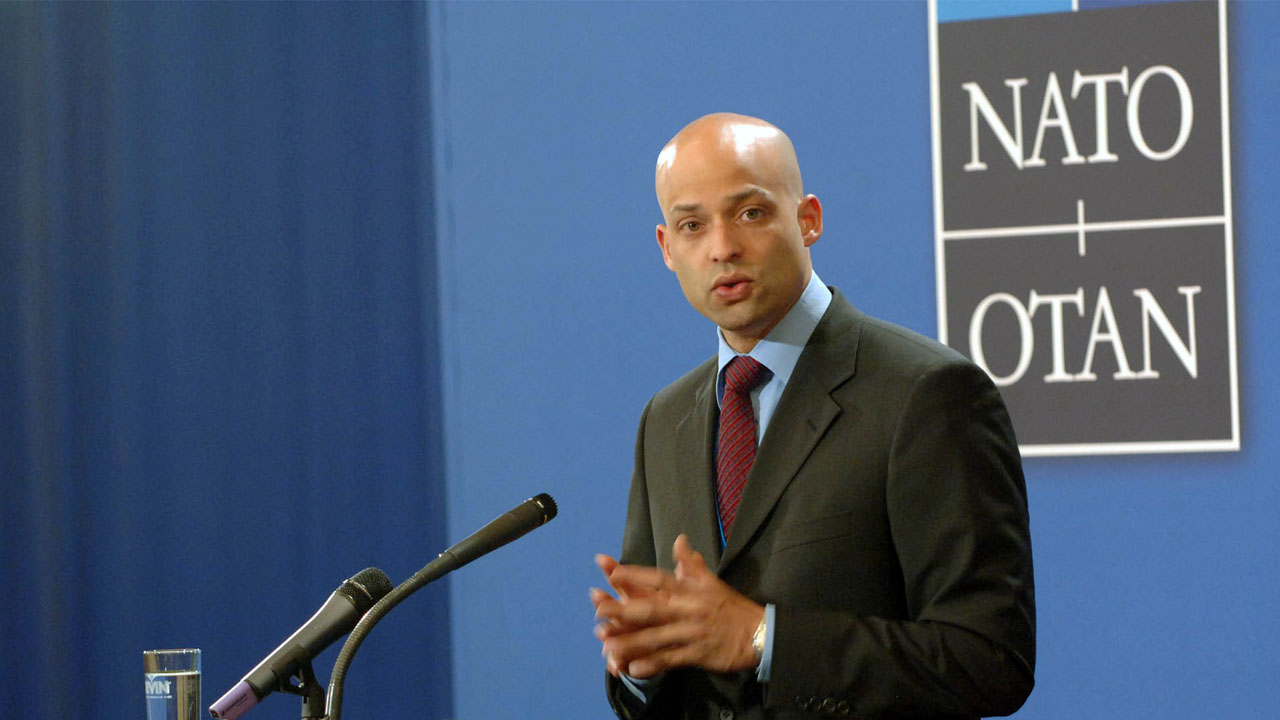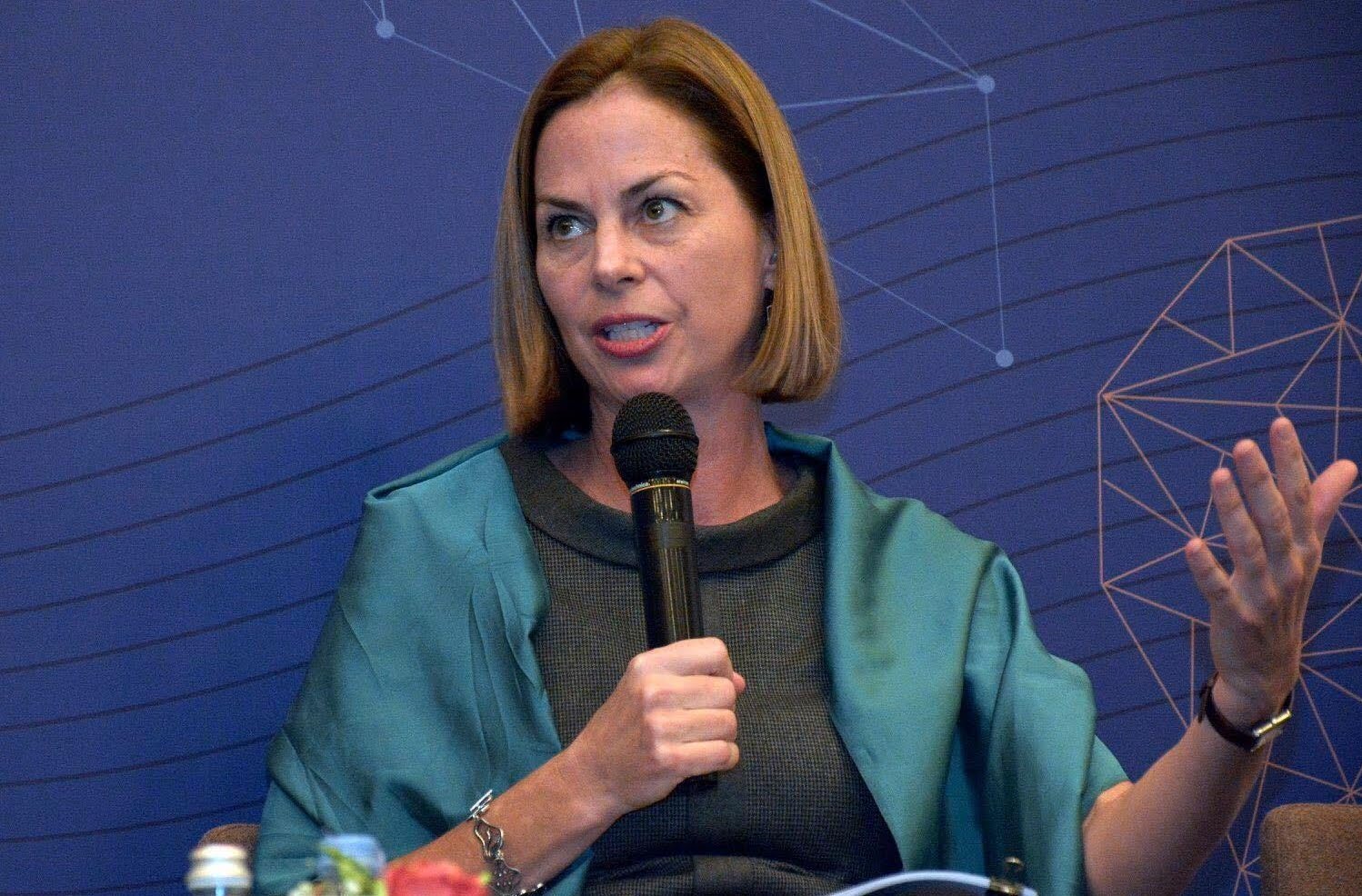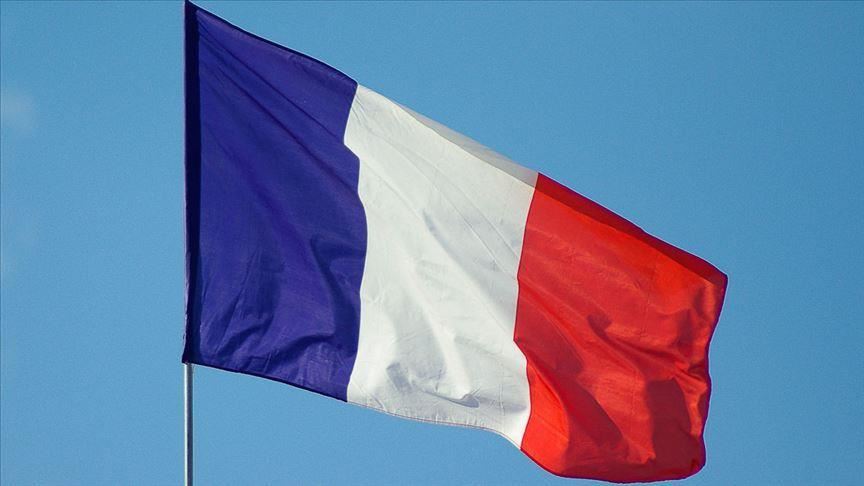news
Brussels Summit Communiqué
Brussels Summit Communiqué was Issued by the Heads of State and Government participating in the meeting of the North Atlantic Council in Brussels on 14 June 2021. The Communiqué reiterates support for the territorial integrity and sovereignty of Ukraine, Georgia, and the Republic of Moldova within their internationally recognized borders. `We reiterate our support for the territorial integrity and sovereignty of Ukraine, Georgia, and the Republic of Moldova within their internationally recognized borders. In accordance with its international commitments, we call on Russia to withdraw the forces it has stationed in all three countries without their consent. We strongly condemn and will not recognize Russia’s illegal and illegitimate annexation of Crimea, and denounce its temporary occupation. The human rights abuses and violations against the Crimean Tatars and members of other local communities must end. Russia’s recent massive military build-up and destabilizing activities in and around Ukraine have further escalated tensions and undermined security. We call on Russia to reverse its military build-up and stop restricting navigation in parts of the Black Sea. We further call on Russia to reverse its recognition of the Abkhazia and South Ossetia regions of Georgia as independent states; to implement the EU-mediated 2008 ceasefire agreement; to end its militarisation of these regions and attempts to forcibly separate them from the rest of Georgia through the continued construction of border-like obstacles; and to cease the human rights violations, arbitrary detentions, and harassments of Georgian citizens. We reiterate the decision made at the 2008 Bucharest Summit that Georgia will become a member of the Alliance with the Membership Action Plan (MAP) as an integral part of the process; we reaffirm all elements of that decision, as well as subsequent decisions, including that each partner will be judged on its own merits. We stand firm in our support for Georgia’s right to decide its own future and foreign policy course free from outside interference. As an Enhanced Opportunities Partner, Georgia is cooperating closely with the Alliance across a wide range of issues. We highly appreciate Georgia’s substantial contributions to NATO operations, which demonstrate its commitment and capability to contribute to Euro-Atlantic security. We welcome the recent political agreement on the Way Ahead for Georgia and encourage its full implementation by all sides. This agreement paves the way for the important reforms which will help Georgia, an aspirant country, progress in its preparations towards membership. We remain committed to making full use of the NATO-Georgia Commission and the Annual National Programme in deepening political dialogue and cooperation. We commend the significant progress on reforms that Georgia has made and must continue to make, and which have helped Georgia strengthen its defense capabilities and interoperability with the Alliance. Georgia’s relationship with the Alliance contains all the practical tools to prepare for eventual membership. We are working closely with Georgia on security in the Black Sea region, in response to Russia’s increasingly destabilizing activities, and welcome the steps taken to implement the refreshed Substantial NATO-Georgia Package. We stand ready to enhance our support to Georgia, including in building resilience against hybrid threats, in training and exercises, and insecure communications. We look forward to the next NATO-Georgia exercise in 2022`.
Ambassador Hubert Knirsch: The open door policy was reconfirmed, explicitly with regard to Georgia
The open-door policy was reconfirmed, explicitly with regard to Georgia. German Ambassador to Georgia Hubert Knirsch said in a comment with ‘Europetime’. „The Brussels summit has reconfirmed NATO´s unity and determination to maintain and strengthen security in the Euro-Atlantic area. The open-door policy was reconfirmed, explicitly with regard to Georgia. NATO appreciates Georgia as a close partner and as a country that deserves continued support in the important reforms it conducts“, - Said Ambassador Hubert Knirsch. Hubert Knirsch: Germany has a leading role in the active cooperation in the framework of the Substantial NATO-Georgia Package Exclusive: NATO welcomes Georgian cross-party declaration ahead of the summit Brussels Summit Communiqué
NATO welcomes Georgian cross-party declaration ahead of the summit
NATO welcomes Georgian cross-party joint statement ahead of the summit - said Alliance in a comment with Europetime. “ We welcome this cross-party declaration on NATO. It is another sign that Euro-Atlantic integration is a goal which unites the full political spectrum in Georgia”. Georgian ruling party, opposition sign joint statement ahead of NATO summit.
Philip Reeker: The Anaklia Deep Sea Port and all the biggest infrastructure projects are a great opportunity
The Anaklia Deep Sea Port is a great opportunity, - said Acting Assistant Secretary of State for European and Eurasian Affairs, Philip Reeker, in an exclusive comment with Europe Time. „It is a great opportunity there. Create the environment and if it's for the attraction of investors they will come. This is an investment opportunity. That is why we want to help and support at this moment, "said Philip Reeker. As for the issue of the free trade agreement with the United States. Philip Reeker answered a question by Europe Time in this regard. According to Philip Reeker, strengthening the rule of law and reforms are very important elements that will help Georgia become attractive for international trade. "We appreciate Georgia's desire to boost trade relations with the United States. To do this, it is very important to continue the course of reforms. Among them, the implementation of the April 19 agreement and, consequently, the creation of a more attractive environment for international trade, in which the rule of law plays a very big part. As you know, the issue of free trade is the prerogative of the American Trade Representative. But I want to mention that in this process it is very important to develop a transparent business environment, and this process is going on between them, with our help as well", - said Philip Reeker. „We should encourage more direct investment in Georgia. One would be infrastructure, a particular port project, which is a huge opportunity for infrastructure investment. But also, there are so many other opportunities in agriculture and other commodities, including mining, including manufacturing, said Senator Rob Portman in an exclusive interview with Europe Time. He stressed that it is extremely important that more countries invest in Georgia. „I hope more American companies will do so. One reason some companies are concerned is because of the judicial system. So that is one reason the Judiciary System is important: it provides an opportunity for more prosperity for all Georgians because more foreign investments mean more jobs. One would be infrastructure, a particular port project which is a huge opportunity for infrastructure investment. But also, there are so many other opportunities in agriculture and other commodities, including mining, including manufacturing. So I think there is a great opportunity for more investment here to help Georgian people. Investment is good and we should encourage more direct investment in Georgia, but also more trade. So Georgia's top trade partner is Turkey, and its second is Russia. The United States is a very small part of that, so we need to figure out how to have more supply chains come in from Georgia to America or more exports to America and vice versa. Because I was involved as a United States Trade Representative, that is something I will be working on personally. I hope we can expand our trade-in addition to direct investment, "said Senator Rob Portman in an exclusive comment with Europe Time.
Senator Rob Portman: We should encourage more direct investment in Georgia
We should encourage more direct investment in Georgia. One would be infrastructure, specifically a particular port project, which is a huge opportunity for infrastructure investment. But also, there are so many other opportunities in agriculture and other commodities, including mining, including manufacturing, "-Senator Rob Portman said in an exclusive comment with Europe Time. He stressed that it is extremely important that more countries invest in Georgia. I hope more American companies will do so. One reason some companies are concerned is the judicial system. So that is one reason the judicial system is important: it provides an opportunity for more prosperity for all Georgians because more foreign investments mean more jobs. One would be infrastructure, specifically a particular port project, which is a huge opportunity for infrastructure investment. But also, there are so many other opportunities in agriculture and other commodities, including mining, including manufacturing. So I think there is a great opportunity for more investment here to help Georgian people. Investment is good, and we should encourage more direct investment in Georgia, but also more trade. So Georgia's top trade partner is Turkey, and its second is Russia. The United States is a very small part of that, so we need to figure out how to have more supply chains come in from Georgia to America or more exports to America and vice versa. Because I was involved as a United States Trade Representative, that is something I will be working on personally. I hope we can expand our trade-in addition to direct investment, "said Senator Rob Portman in an exclusive comment with Europe Time.
MEP Marina Kaljurand: My message is to not give up your dream of becoming a member of the EU and NATO
The Chair of the delegation to the EU-Georgia Parliamentary Association Committee, Marina Kaljurand, "is a very strong believer in open-door policy". In an exclusive interview with Europe Time, she stated that each nation should have the right to decide their own future and which organizations they wish to join. Marina Kaljurand speaks about Estonias example, "when nobody was expecting us in the EU and NATO. But it was a political decision. We were doing our reforms, we were trying to do our best, so we were waiting for the window of opportunity, and once it was open, we were lucky and happy to take advantage of it. Marina Kaljurand is an Estonian politician who served as Minister of Foreign Affairs (2015–2016). Earlier, she served as the Ambassador of Estonia to the United States (2011–2014) and in Russia (2007–2011). _Thank you for the interview. How do you assess EU-Georgia relations today? Of course, the recent political crisis in Georgia has had some impact on EU-Georgia relations, but I would urge you today to get back on track. Of course, we are following very closely the political developments in Georgia. Next month we will be at the Eastern Partnership Summit. In the autumn, we can look into more details on how far we are in this process. _As it is known, Georgia, Ukraine, and Moldova have signed a memorandum on establishing the Associated Trio. How do you evaluate this step forward by the trio of countries? I would urge you to try all the ways. All methods if it is your aim to have closer integration with the EU. So the cooperation among these three countries is a good thing, but you should also continue your bilateral efforts because the Eastern Partnership is very clear. It provides as much as the Eastern Partners are interested in, and they cooperate in the fields they want to cooperate in. Of course, also for democratic reforms. So, my advice would be to take advantage of all the different formats: the Eastern Partnership as such, the trio as such, and bilateral relations as such. When we are talking about a new format, I think about the close integration of different policies. I had a very good meeting with the speaker, Kakha Kutchava, and he told me that Georgia's future is in accordance with the same projects that we have in the EU. For example, the green deal, digitalization, and economic reforms. So you're trying to align yourself as closely as possible with the policies of the EU. I think this is a very smart approach because it means that we are developing new actions together very quickly, and I think, for example, economic cooperation, there is a lot we can do at the moment. So the economic status of Georgia should be like we have in Norway, Switzerland, Iceland. So, I believe that aligning different policies and formats is also very important. _What should be the main tenets and ideas of these three (trio) countries' new way of life? You should agree among yourself. But I do not see how there can be any closer integration without continuing democratic reforms. The international community and the EU are looking toward judicial reforms in Georgia, constitutional reform, and electoral reform in the same way they are fighting corruption in Ukraine. There are so many reforms where these three countries are on a different level, on advisement. So, while exchanging best practices, exchanging information, and cooperating at that level may be preferable, the EU, of course, urges you to continue with the democratic reforms. like to also say that I think it is important to draw from my country's experience when Estonia was exceeding the EU. For a long time, we were doing reforms to enter the EU. We were not doing that for the EU. We were doing it for our people. So I urged these reforms not because the EU demands it or because the EU wants you to do it. It is just because people want it, and they said it very clearly: they want to live in a society that is very much like the EU, they want to be a part of the EU, they want to be members of the EU. So, continuing the reforms is crucial not only for the EU but also for your people. _Georgia plans to apply for EU membership in 2024. How do you view membership prospects, given your statement that there is no consensus in the EU? I am a very strong believer in the open-door policy. I am a firm believer that each nation should have the right to determine its own future and the organizations to which it wishes to belong. And again, I come from Estonia. Trust me, we have been through that at the beginning of the 90s when nobody was expecting us in the EU and NATO. But it was a political decision. We were doing our reforms, trying to do our best, so we were waiting for the window of opportunity, and once it was open, we were happy to take advantage of it. So my message is to not give up your dream of becoming an EU or NATO member, be prepared, continue reforms, but at the same time, I urge you to be realistic. I do not see consensus in the EU or NATO. Membership is a political consensus. I do not see the consensus in the political parties in the European Parliament. I do not see a consensus among member states. There are very different opinions to the contrary. In Brussels, some states are still saying that enlargement in 2004 was a mistake. So there are so many different opinions. You should be determined to convince the skeptical ones that you deserve to decide a point in the future and that you deserve a unilateral political consensus decision. I do not want to speculate and predict, but personally, I do not think so, because I am speaking of the reality we have today. If it happens, I will be the first one to greet you as a member of the EU and I will be very happy for you, trust me. But I also want to be realistic and frank about the present situation. That’s why I was saying that I think that Georgian leadership should pursue its ambitions but also keep realistic expectations so the people will not be disappointed if they do not get a message by 2024. People will understand it is a process and one day the window will be open. I do not know when, but we should work together for the Georgian people as soon as possible. _We can hope that something will change in the next three years... it has been a long time before I agree. That’s why I do not speculate. I am speaking on behalf of the knowledge that I have today. I am a diplomat and former foreign minister, so I have seen how the accession decisions will be made previously, so that’s why I am trying to be realistic. But you should do everything possible to enter the EU and NATO. You should be persistent in convincing those who are hesitant. It is not about Estonia, because Estonia supports Georgia anyway, but about the countries that are much more hesitant, and I know that they are the big countries of the EU that do not have a treaty of accession today. Just remember what President Macron said. Look at the election in Germany. We do not know the result yet, but we do know the political landscape that will be there after that. We heard the commission's position on enlargement, so these are the signs that have to be taken seriously about – "yes". You have to try everything. You have to do everything to fulfill your dreams. We know that Russia has applied various methods to create a hybrid war against many countries, including Georgia. There are some expert opinions that say the European Union has a more constructive approach. What is your view of these relations, especially amid growth-based aggression from the side of Russia? In 2008, when war broke out, I was Estonian ambassador to Russia (2007-2011). I was an Estonian ambassador in 2007 when Russia had a cyber attack on my country. So I'm not naive about Russia, or about Cyber Challenges, or about information operations. I personally experienced that for years as an Estonian ambassador to Russia. By the way, when Georgia was Russia's enemy number one and I was the Estonian Ambassador to Moscow, we served Georgian wine in my embassy. Since Georgian wine was forbidden in Moscow, we brought it from our supermarket in Tallinn and we served it at the receptions. So I called it a little wine diplomacy in 2008. As for the EU, I think our relations are at the lowest with Russia, but at the same time, they are very frank and open. The visit of Joseph Borell to Moscow, as well as the press conference, were eye-openers for many Western countries hoping for or already having partnership relations with Russia. If you remember, the press conference was embarrassing and Lavrov made it very clear that he was laughing and not taking seriously the EU, its aspirations, human rights protection, the rule of law, and EU principles. That is reality, I think the principles of how we cooperate with Russia should be reviewed, but the basics should be the same. Yes, we have to cooperate with Russia on some topics. Mutual interests, the environment, crime, terrorism, are topics where we can cooperate. Second, we should not close our eyes to things that are happening in Russia. That’s why I am really proud that the EU is still united behind the sanctions introduced for Crimea, as well as the sanctions that followed the arrest of Navalny and recent developments. So, we should continue to remember the things that we do not think are right in Russia. Third, we should continue supporting exchanges, free media, and opposition, because I believe that this is the best way of advancing young people, not to live in society, but to see how democratic societies are functioning and what it means to be a member of the EU. I think this is the future of the younger generation. I do not agree with all the political statements of Navalny, but he has the power to bring the opposition together. Something I did not see in Russia is that the opposition will not reach out to people in the same way that Navalny and the opposition are, and, of course, very concrete and strong responses on cyberattack and information operations; we have the same goal, we have been targets of Russian cyber operations, and we can cooperate very closely here. So, I am really proud that my country has been supporting Georgia. During the war in 2008, I was a cyber expert, and we developed cooperation projects. Georgia is our priority for developing cooperation. So I am really proud that my country is a good friend of Georgia. _The NATO Summit will be in two weeks in Brussels. What could you say about Georgia's expectations? It is a very good question because we all remember the Bucharest summit, which said that Georgia and Ukraine should become NATO members and the next steps should be MAP and you do not have it after 13 years later. The NATO Summit will be in two weeks in Brussels. As with the EU, I would urge you to present your position to work towards receiving positive signals and positive answers from NATO. So, as I have said with the EU, that is a future your people have chosen. And you, journalists, politicians, and civil society, should work in the service of your people and towards the dreams that your people have expressed. So, you have the support of many friends in the EU and NATO.
Mamuka Murjikneli has been appointed Director General of the new Batumi Multimodal Terminal
Mamuka Murjikneli has been appointed Director-General of the new Batumi Multimodal Terminal. He is qualified and experienced in the field of diplomacy, as well as in the field of economics and business. He started his career at the Ministry of Foreign Affairs. At various times, he served as Attaché (for Commercial Affairs) and as a Senior Counselor at the Embassy of Georgia to the United States, Canada, and Mexico. From February 2019 to May 2021, he held the position of Ambassador Extraordinary and Plenipotentiary of Georgia to Turkmenistan. He also has extensive experience in private business. In 2005-2007, Mr. Murjikneli worked at Camargo Energy Corp as Manager External Affairs. In 2007-2015, he worked for Tethys Petroleum Limited and he held the positions of Manager of External Affairs, Head of Corporate Affairs, and Vice President of External Affairs. In 2015-2017, he worked at Skyland Petroleum Group as Vice President of External Affairs. In 2017-2018 he was an Independent Consultant in the regions of Central Asia and the Caucasus. Note: The construction of a multimodal mineral fertilizer terminal on the territory of the Batumi Sea Port was completed in 2021. The regional-scale project that will be dedicated to transshipment of cargo from Central Asia countries to the European market through Georgia has been implemented with the partnership of a leading American corporation Trammo and Wondernet Express Investment Group with an investment of $ 25 million. The development of the project involved leading design institutes of Europe and the world's largest suppliers of ship loading and storage equipment. The terminal is fully automated and includes conveyor systems and ship loaders. It is equipped with modern equipment for the resetting of mineral fertilizers, with the latest filtration technology. The terminal production capacity allows the process of up to 1,500,000 tons of mineral fertilizers a year. Over 100 people, mostly from Adjara, are employed on the terminal. In the near future, the company is planning to increase the amount of investment, as well as the number of working places. Note: ‘Trammo’ is ranked No 56 on Forbe’s list of America’s largest private companies.
Ghassan Khalil, UNICEF Representative in Georgia: We stay committed to support the Government in the implementation of the vaccine deployment plan
`We stay committed to support the Government in the implementation of the vaccine deployment plan`, - Said in an exclusive interview with Europe Time Ghassan Khalil, UNICEF Representative in Georgia. He also stressed the importance of existing queries and providing correct information to debunk various myths and misinformation related to COVID-19 vaccination. With an infodemic, false claims circulate more easily, hampering public health responses, creating confusion, distrust, and causing harm to people’s lives: _What would be UNICEF message on Child Protection Day in Georgia? On Child Protection Day, UNICEF is urging the Government and businesses to provide greater investment and greater access to scale up tailored, holistic, and community-based parenting programs and services to support parents and caregivers, especially for the most vulnerable families. Family support services are essential at any stage working with the family. The Code of the Rights of the Child puts an emphasis on the importance of family support services at the central as well as the municipal level. Strong family support services are required to ensure a family environment for every child and to avoid the separation of a child from a family. Social welfare staff at central and municipal levels are key for a quality social service. Being a parent is the most important job in the world. COVID-19 and its socio-economic consequences have piled new forms of stress onto parents and exacerbated pre-existing vulnerabilities and adversity within families. As we move into the second year of the pandemic, parents and caregivers continue to struggle to keep children learning and their families functioning, often in the face of worsening poverty. Now more than ever, we need to reimagine the support we give to families and parents so that they have the time, resources, and services to give children the best start in life. In partnership with the European Union, we will be supporting parents and children in promoting positive parenting and having access to necessary services. To emphasize the importance of positive parenting and family support services, UNICEF, in partnership with the European Union as part of their joint project ‘Strengthening Systems and Services for Child Protection in Georgia” is holding a “Parenting Week”. The campaign will engage parents, caregivers, professionals, and children and encourage them to start thinking about sound approaches to positive upbringing and protecting children’s rights, which can be achieved through positive communication and respect. This includes online webinars, in-person meetings, and social media campaigns. _The risks of child involvement in labour have increased in the context of the Covid-19 pandemic, according to the report was prepared with the support of UNICEF. More specifically, what concerns this study unveils and how do you find out ways to sort out them? The Convention on the Rights of the Child (CRC) recognizes every child’s right, “to be protected from economic exploitation and from performing any work that is likely to be hazardous or to interfere with the child’s education,” or that is likely to harm the child’s health or, “physical, mental, spiritual, moral or social development.” Understanding the underlying causes of child labour and addressing their interconnectedness is the key premise behind the UNICEF prevention and response approach. Child labour is largely driven by vulnerabilities caused by poverty and deprivation. Progress to eliminate child labour is therefore closely linked to reducing these vulnerabilities, mitigating economic shocks, and providing families with social protection and an adequate level of regular income. UNICEF and other child protection actors are increasingly moving away from small-scale, issue-specific projects in favor of a systems approach, with a strong focus on prevention. The systems approach facilitates more systematic policy development and programming that considers the child, family, and community as a whole. Better coordination of poverty reduction, social welfare, justice, labour, and education policies ensure cost-effectiveness and efficiency. Last year, UNICEF supported the Public Defender’s Office in developing the Special Report On Child Labour During the New Coronavirus Pandemic and Beyond, which analyzed the pandemic’s impact on child labour, gaps in legislation, and problems identified in practice. The study found out that: · It is a common practice in the regions to involve juveniles in household and seasonal work; · Labour migration of juveniles is also a common practice in Georgia, including migration abroad where children perform heavy labour under inadequate conditions and for low payment; · Children systematically miss or drop out of school due to their involvement in labour. The absence of students, or the reasons for the above, are not recorded in some instances. As a result, not all cases of child involvement in labour are recorded and thus remain un-responded. · Public awareness of child labour rights and childrens’ protection from harmful forms of labour is low. Society is, in some cases, tolerant towards similar cases. · Elimination of child labour on the street and the identification of the needs of children living and working on the streets remains a challenge due to a lack of resources and qualified personnel. The study also provides specific recommendations. Georgia ratified the Convention on the Rights of the Child, and many other international instruments, which establish Government responsibility for protecting every child of hazardous labour. The Code of the Rights of the Child of Georgia that came into force several months ago envisages child protection from harmful forms of labour and the development of specific mechanisms for the eradication of child labour on both national and municipal levels. _UNICEF is supporting the Government of Georgia in procuring vaccines through the COVAX platform. How do you assess the vaccination process and what are the expectations in the direction of receive new doses? UNICEF has been supporting the Government of Georgia in carrying out routine immunization programs and has also been ready to facilitate the communication with COVAX on COVID-19 vaccines upon the request of the Government. UNICEF is part of the COVAX Facility, which aims at accelerating the development and manufacturing of COVID-19 vaccines, therapeutics, and diagnostics and guaranteeing that people in all corners of the world will get equitable access to COVID-19 vaccines once they are available, regardless of their wealth. As the largest vaccine buyer in the world, procuring more than 2 billion doses annually for routine immunization and outbreak response on behalf of nearly 100 countries, UNICEF is coordinating and supporting the procurement, international freight, and in-country distribution of COVID-19 vaccines for the COVAX Facility. We are also building on years of experience in providing simple, effective, and accurate information to build public knowledge, awareness, and confidence in vaccines. We are working with partners to ensure that local communities are engaged in the overall vaccination process. For this, we are building on our support for immunization programs by working with health workers, religious leaders, teachers, and influencers to share the right information before, during, and after vaccination campaigns. Immediately after the Government requested UNICEF’s support, we started to work with the COVAX Facility to support the Government of Georgia in the procurement of COVID-19 vaccines and the process is still ongoing. We stay committed to supporting the Government in the implementation of the vaccine deployment plan. _ UNICEF is actively involved in the awareness campaign in the regions, so what are the vision of the population with vaccination and in consideration of this and the vaccination process in general, do you think that vaccinating 60% by the end of the year is prospective? Immunization is crucial in combating this pandemic, which is affecting every one of us. We need to understand that vaccination is the only way to get back to normalcy and to ensure children and their families regain access to education, health, and protective services, which have been severely disrupted. No one will be safe until everyone is safe. UNICEF is supporting the National Center for Disease Control to implement the National COVID-19 Vaccine Deployment Strategy by reaching ethnic minority regions or various target groups to organize information sessions around the benefits of vaccination. We visited the Samtskhe-Javakheti region and Adjara AR where we had meetings with religious leaders of the Georgian Orthodox Church and the Armenian Apostolic Church, doctors, teachers, and local media representatives to learn about various aspects of the COVID-19 vaccination. The sessions were led by prominent doctors and public health experts who responded to the questions of community representatives around vaccination. It is important to respond to all existing queries and to provide correct information to debunk various myths and misinformation related to COVID-19 vaccination. With an infodemic, false claims circulate more easily, hampering public health responses, creating confusion, distrust, and causing harm to people’s lives. National governments, international organizations, civil society has tried to counter misinformation in multiple ways. However, the issue persists and is becoming increasingly challenging. That is why it is important to constantly engage with local communities to maintain a regular dialogue and provide correct information. That’s what we are doing while visiting various regions, including the ones populated by ethnic minorities. We try to be closer to various groups, listen to them more carefully to understand their concerns and respond to their queries. The Government of Georgia is implementing the National Vaccine Deployment program and let’s hope that the Government can reach its goals regarding the vaccination.
USAID Reaffirms Commitment to Georgia’s Development with $330Million in Assistance for Resilience, Democracy, and Economic Growth
USAID/Georgia Mission Director PeterWiebler and Minister of finance of Georgia Lasha Khutsishvili signed a Development Objectives Grant Agreement that will enable USAID to provide $330 million in assistance to Georgia over the next five years. The new agreement makes it possible for USAID/Georgia to fully implement the development strategy it launched in 2020, supporting Georgia to strengthen resilience against malign influence, build citizen-responsive and accountable democratic institutions, and achieve inclusive economic growth that creates high-value jobs opportunities in communities around the country. “This agreement further strengthens the United States and the Government of Georgia’s strategic partnership to advance Georgia’s sustainable development and Euro-Atlantic aspirations. It also reflects USAID's commitment to work with a broad range of partners within Georgian society - including government, civil society, the private sector, and others. Over the next five years, we will co-create, cost-share, and co-invest with our Georgian partners, both public and private, to identify and support Georgian solutions to democratic and economic development challenges“, - said USAID/Georgia Mission Director Peter Wieber. ”Minister of Finance of Georgia Lasha Khutsishvili remarked: “I would like to express my gratitude to the Government and people of the United States of America for their continued support for Georgia’sdevelopment. The United States Agency for International Development is our most important development partner, providing assistance for the strategic development needs of the country. This cooperation was vital for the country’s development during the first years since regaining independence, and this cooperation will be instrumental for the realization of the country's Euro-Atlantic aspirations. I am sincerely convinced that signing this Development Objectives Grant Agreement is yet another step forward in our successful cooperation“. The new Development Objectives Grant Agreement reflects USAID’s commitment to partnering with Georgia to overcome the remaining challenges to sustainable development, including the need for citizen-centered politics, continued progress in strengthening the Rule of Law and accountable governance, countering malign influence, and sustainable employment opportunities in the country regions. About USAID in Georgia: As the leading development agency of the U.S. Government, USAID supports Georgia to build the capacity to plan, finance, and implement its own solutions to development challenges. USAID has worked in Georgia since 1992, supporting the country's transformation into a democracy that is increasingly integrated into western political, security, and economic institutions. More than 35 USAID programs strengthen Georgia's resilience to malign influence, consolidate democratic gains through enhanced citizen responsive governance, and enables high-value employment through increased economic growth.
Researcher at CEPS Tinatin Akhvlediani: The Memorandum demonstrates the readiness of Georgia, Moldova, and Ukraine to speed up their integration with the EU
The Memorandum signed by the three Associated states two days ago demonstrates the will, ambition, and readiness of Georgia, Moldova and Ukraine to deepen and speed up their integration with the EU. Said Tinatin Akhvlediani, Researcher at the Center for European Policy Studies (CEPS) in an interview with Europe Time. `Back in December 2019, the DCFTA states have already issued a statement with the request to launch the dialogue with the EU in the “Trio” format. Yet, the statement was not formally addressed by the EU. In this regard, the new Memorandum is an important step in making the cooperation among the AA countries more systemic and the awaiting response from the EU will demonstrate the EU`s readiness to support speeding up the European integration of the „Associated Trio“, - Said Tinatin Akhvlediani. _Based on the analysis and studies conducted by CEPS with regard to the Eastern Partnership countries, how would you evaluate Georgia's position in terms of relations with the European Union and the implementation of the Association Agreement? Let me start with a report which Michael Emerson and I have prepared last year for the European Parliament to assess Georgia’s Association Implementation. As pointed out in this study, Georgia is well on track with the implementation of its commitments laid down in the Association Agreement. In fact, there are areas in which the country even went beyond its obligations and aligned its legislation with the newest EU laws (for instance, in digital and cyber areas). Our most recent study on the comparison of the Balkan and the EaP states also shows that among the three Associated States, Georgia scores highest in terms of the implementation of the DCFTA. When it comes to political and legal governance, the country’s scores are roughly the same as for Ukraine and Moldova, owing mostly to the anti-corruption reforms actively implemented within the past decade. Up to date, Georgia still remains a relatively incorrupt state in the Eastern Partnership region, yet the most recent developments point to a stagnation in anti-corruption reforms and highlight that the country should reinforce its efforts to eradicate corruption. Moreover, Georgia recorded worsening its political reputation by the lack of democratic accountability, informal governance, and irregularities in the 2018 and 2020 presidential and parliamentary elections. _In your opinion, how did the current crisis impact the EU integration path, and don´t you think that it is crucial to implement reforms that would ultimately affect membership prospects? The current political crisis undoubtedly impacted Georgia’s political reputation and once more made it clear that deepening European integration very much depends on the country’s efforts to guarantee the rule of law, human rights, and democracy. In this respect, the EU has iterated in all its statements that undertaking reforms in the judiciary and the electoral system should be an absolute priority for the country. This was also highlighted in Charles Michel’s detailed proposal on how to resolve political conflict. Therefore, it is unequivocal that Georgia should implement needed reforms and address politicized justice and drawbacks in its electoral and judicial systems. The progress in these areas will be undoubtedly crucial for deepening the relations with the EU. _Internal political crisis by stepping up great efforts and mediation from the side of the European Union may be considered resolved at this stage, in your opinion, to what extent does the end of the crisis paves the way for further progress in the process of EU integration? While the EU has been criticized for being a rather weak geopolitical player in the Eastern Partnership, its active engagement with Georgia importantly reinforced the EU’s visibility and presence in the region. Through its effective mediation, the EU has managed to broker a deal among extremely polarized political parties, which seemed an almost impossible mission to do. Brokering a deal, in the end, highlighted that for both parties, for the EU as well as for Georgia, supporting Georgia’s European integration is strategically important. _Georgia plans to apply for EU membership in 2024. How do you view this prospect? In general, while considering the enlargement the EU follows the accession criteria, so-called Copenhagen criteria which puts forward three main conditions for the EU membership. These are the political criteria covering the stability of institutions guaranteeing democracy, the rule of law, and human rights; economic criteria implying having in place market economy, and administrative and institutional capacity to effectively implement the EU acquis and the obligations for the EU membership. The current political crisis highlighted that Georgia clearly has problems with the first set of conditions and meet political criteria by 2024 might be quite challenging. When it comes to the economic criteria, while Georgia has well advanced in terms of implementing the DCFTA, the Georgian economy overall still remains quite weak and fragile, casting doubts on the negative side effects of the deeper economic integration with the EU’s single market. The institutional capacity of Georgia has its own challenges in the “struggle for good governance”. Therefore, applying for EU membership in 2024 should be quite a challenging plan for Georgia. Apart from fulfilling the accession criteria, Georgia’s membership prospects very much depend on the EU’s political will and the EU’s policy in the Eastern Partnership region. The EU’s new EaP policy published in March 2020 did not promise membership prospects, nor many concrete upgrades in the relations with the EU-associated Trio, Georgia included. Yet the new policy framework put forward areas for enhancing cooperation, such as green and digital transformation. Guiding with the 'more for more' proposition from the EU, Georgia could strategize to deepen sectoral cooperation with the EU in these areas. _Don´t you plan some kind of research on Georgia's relations with the European Union, even within the Eastern Partnership? Well, we quite regularly publish papers, commentaries, and reports on the European integration of Georgia, Moldova, and Ukraine on the dedicated website: https://3dcftas.eu/. Our current studies include the Balkan and Eastern European Comparisons, comparative study across the EaP on the Covid effects on Digital Literacy, and upcoming editions of the trilogy handbooks on the EU-Georgia/Moldova/Ukraine Association Agreements and Struggle for Good Governance. Particularly in Georgia, we are currently working on the ex-post evaluation of the EU-Georgia DCFTA. This will be the first ex-post evaluation of the DCFTAs, commissioned by the European Commission, DG Trade, and it will bring quite interesting insights on the effects of the DCFTA on Georgia’s economic, social and sustainable development as well as the EU’s trade and neighborhood policies. The final report will be published in a years’ time, yet before then, your readers might consult the study website: https://www.dcfta-evaluation.eu/. Your readers might also find it interesting to read my blog written for the Georgian Institute of Politics on the new Eastern Partnership policy and Georgia’s Deliverables for 2020.
Georgia, Ukraine, and Moldova have signed a memorandum on establishing Associated Trio
Foreign Ministers of Georgia, Ukraine, and Moldova, David Zalkaliani, Dmytro Kuleba, and Aurelius Ciocoi, have signed a memorandum on developing Associated Trio in Kyiv. The foreign ministries of the three countries agree to build up a joint coordination and cooperation format Associated Trio, to strengthen the European integration. According to the memorandum, all three countries recognize that their fundamental goal is EU membership, based on Article 49 of the EU Treaty. The Associated Trio countries will fulfill their obligations under the Association Agreements to achieve the ultimate goal of European integration. The Participants agree to establish the “Association Trio” as a format of enhanced cooperation and dialogue among the Ministries of Foreign Affairs of three EU Associated Partners, as well as with the European Union on matters of common interest related to the European integration of their countries, including cooperation within the Eastern Partnership. The Participants express the aspirations of the “Association Trio” countries towards the membership of the European Union and reaffirm their commitments to further progress in the implementation of the Association Agreements with the EU, which, however, do not constitute the final goal of their relations with the EU. In this context, they recall that pursuant to Article 49 TEU, as European states, Georgia, the Republic of Moldova, and Ukraine have a European perspective and may apply to become a member of the European Union, provided that all necessary criteria for membership are adhered to. In accordance with the common interests of their European integration, the Participants will cooperate to enhance their political association and economic integration with the EU, as provided by the respective Association Agreements, and promoting new opportunities within the Eastern Partnership. The Participants believe that the significant potential of further development of their states’ integration with the EU requires that the tools and areas of cooperation correspond to the needs and capabilities of the “Association Trio”, providing them with more opportunities for enhanced political dialogue, as well as greater economic and sectoral integration. The Participants are confident that the process of their European integration will further benefit from the incentive-based approach (“more for more”) aimed to set progressive benchmarks of the integration process and provide for tangible achievements for their societies. The Participants’ contribution to the cooperation within the Eastern Partnership will be without prejudice to their bilateral cooperation with the EU in line with their European aspirations. The Participants underline the importance of EU support to the Partners’ sovereignty and territorial integrity within their internationally recognized borders, as well as to strengthening their resilience and countering the security challenges. The Participants will continue working towards strengthening the EU’s role in advancing peaceful resolution of conflicts within relevant formats and platforms. Taking into account the ambitious and complex European-oriented reform agenda of the “Association Trio” states, the Participants recognize the crucial role of the EU assistance, in particular through dedicated financial instruments, corresponding to the level of their commitments and goals and in line with the principle of conditionality in relation to the progress in reforms. Being guided by the goal of deepening their European integration process as well as willing to ensure the further strategic development of the Eastern Partnership the Participants agreed to promote jointly in the dialogue with the EU institutions and the EU Members States the following objectives: • Expanding the agenda of the dialogues between European Commission and “Association Trio”, in addition to the DCFTA-related issues, to new thematic areas for enhanced cooperation, such as transport, energy, digital transformation, green economy, justice, and home affairs, strategic communications, healthcare; • Looking beyond DCFTA framework and elaborating additional tools to facilitate and speed up the integration of the “Association Trio” into the EU Internal Market; • Enhancing security and defense cooperation with the EU with the special focus on countering hybrid threats, strengthening cyber resilience, developing cooperation platforms with the EU Hybrid Fusion Cell and EU Cyber Security Agency, participation in CSDP missions and operations as well as participation in the EU Permanent Structured Cooperation (PESCO) projects; • Promoting further engagement of the “Association Trio” in the EU framework programs and agencies; • Supporting mobilization of the EU robust assistance to uphold complex reforms by the “Association Trio” and ensuring their access to alternative funds and resources at EU’s disposal, including for implementation of the projects of common interest; • Coordinating joint efforts within the Eastern Partnership, based on European aspirations and common needs of the Association Trio. For the purposes of the present Memorandum, the Participants agree to strengthen their cooperation by the following means: • conducting regular and/or ad-hoc trilateral consultations to review ongoing developments or discuss specific issues in the framework of their integration with the EU, as well as cooperation within the Eastern Partnership; • establishing the “Association Trio” coordinators within the Ministries of Foreign Affairs; • holding the “Association Trio” coordination meetings on expert, senior officials and, when appropriate, ministerial levels ahead of important events of the Eastern Partnership agenda, with particular focus on high-level events; • undertaking joint diplomatic demarches to the EU institutions and the EU Member States on the jointly agreed issues related to their European aspirations, common initiatives of their European integration, as well as cooperation within the Eastern Partnership; • conducting coordinated public communication on the common approaches related to the European aspirations of the “Association Trio” and cooperation within the Eastern Partnership, including expert events and publications; • developing new dialogue platforms with regional initiatives involving the EU Member States, aimed at mobilization of support to the Trio’s European aspirations; • considering other forms of cooperation in view of new developments, needs, and strategic goals stemming from progress in the Trio Partners integration with the EU. DATE OF EFFECT AND DURATION This MOU will take effect upon signature. Any Participant to this MoU may cease its participation at any time by giving written notice to the other Participants. In such a case the MoU shall cease to be applied in its regard 1 month from the date the notification has been sent to other Participants. This MoU is also subject to possible revisions at the request of any participant. Signed in three copies in English on May 17th, 2021. David ZALKALIANI Vice Prime Minister, Minister of Foreign Affairs of Georgia Aurelius CIOCOI Acting Prime Minister, Minister of Foreign Affairs and European Integration of the Republic of Moldova Dmytro KULEBA Minister for Foreign Affairs of Ukraine MEP Andrius Kubilius: Georgia, Moldova, and Ukraine need a united action plan of strategic communications with the member countries of the European Union What brings a united action plan of strategic communications with the member countries of the European Union for Georgia, Ukraine, and Moldova
Ambassador Ran Gidor: Israel aspires to a complete cessation of hostilities
„Israel aspires to a complete cessation of hostilities and the civilian populations on both sides are pining for peace“, - Said Ambassador Extraordinary and Plenipotentiary of Israel to Georgia Mr. Ran Gidor in an interview with Europe Time. He also said that the Israeli government is also mindful of the need to create effective deterrence: _The United Nations speaks about the danger of a "full-scale war" in the Middle East. In the interview, you mentioned once the need for pressure on Hamas from the international community, what exactly should this activity be expressed? Hamas needs to understand that there is ‘zero tolerance’ among the international community towards terrorism, the indiscriminate shelling of civilian population centers, and the use of violence. Moreover, some rogue states (such as Iran), who continue to support Hamas (which is formally listed as a ‘terrorist organization’ in the US, EU, Canada, Australia, etc.), need to face the grim consequences of their choices. _International leaders speak about the need for de-escalation and make relevant calls. How do you find out the ways and steps towards de-escalation? Naturally, Israel aspires to a complete cessation of hostilities and the civilian populations on both sides are pining for peace. However, the Israeli government is also mindful of the need to create effective deterrence. Israel did not start this conflict, but rather – was taken by surprise at the sudden and unprovoked launching of rockets into its territory. Therefore, we need to try and make sure that Hamas will never again be tempted to undertake such an attack or start such a catastrophic adventure. Otherwise, we’d be doomed into an endless cycle of violence. _Bilateral relations are actively developing with all major spheres between Israel and Georgia, including regular bilateral and multilateral political dialogue, cooperation between the legislatures, inter-parliamentary friendship groups have been established. How do you assess these relations and what do you consider the main priority? Israeli-Georgian bilateral relations have always been excellent, as is evident by the overwhelming support we have been enjoying among all levels of Georgian society since the beginning of the current conflict. However, I think that too much stress has been placed on our glorious, shared past of 26 centuries of coexistence, and not enough effort has been made towards injecting our bilateral relations with fresh substance. Dialogues, friendship groups, and bilateral visits are all important in themselves, but ultimately they need to lead to practical results. Currently, our bilateral trade is minuscule (42 million USD in 2019) and the level of investment is quite low. Therefore, for me – the top priority is to use Israeli expertise in order to support the incipient Georgian high-tech ecosystem, to lay down the necessary framework of agreements that would boost bilateral trade and investment, and to support the creation of agricultural, scientific, and industrial joint-ventures. Moreover, last month (April 2021) Israelis were the second biggest group of foreign visitors to Georgia (after Turkey), and in 2019 more than 200,000 of my compatriots visited this country. Whereas Israeli tourism is an enormous source of revenue and jobs for the Georgian economy, we need to make Israelis realize that Georgia has so much more to offer than just khachapuri, khinkali and good wine. _Israel is a leading country in terms of vaccination, is there any additional program/project planned in terms of sharing experience? We know that the Embassy of Israel and the Agency for International Development (MASHAV) have made great efforts to assist Georgia in the fight against COVID19. Since the beginning of the pandemic, the Israeli embassy and MASHAV have made large contributions to all the relevant bodies fighting the spread of COVID19 in Georgia. We have supported NCDC (National Centre for Disease Control), the Georgian Red Cross Society, and the Georgia office of the WHO (World Health Organization). We have also invited some top Georgian public health experts to take part in an international forum convened by MASHAV on a bi-weekly basis in order to share best practices and lessons learned. Additionally, MASHAV (which has been operating in Georgia since 1992) has so far trained over 1,500 Georgian women and men in a wide spectrum of academic and professional disciplines, ranging from agriculture – to innovation & entrepreneurship – to public health. We will continue to support our Georgian friends and partners throughout this difficult period.
What brings a united action plan of strategic communications with the member countries of the European Union for Georgia, Ukraine, and Moldova
As already announced, Georgia plans to apply for EU membership By 2024. The country has to take great actions and do certain works before. The domestic political crisis that was resolved by mediation from the side of the European Union and personally Charles Michelle took the leadership to overcome the crisis, has left some caution and skepticism about Georgia in the EU. The MEPs unanimously stated that Georgia's Euro-Atlantic integration was at stake. Just as much careful Europe really needs a solid argument to expand its borders, herewith, Europe is immersed in problems due to the coronavirus pandemic. It is significant to have a defined communication strategy with the key partners and alliances based on common interests and values when Russia uses various methods to make a hybrid war against many countries including Georgia. MEPs and experts come up with such an initiative, For example, Co-President of the Euronest Parliamentary Assembly Andrius Kubilius in an exclusive interview with Europe Time said that Georgia, Moldova, and Ukraine need a united action plan of strategic communications with the member countries of the European Union. He noted that Georgia needs a highly effective strategic communication strategy with the EU institutions as well as EU member states to work together with Ukraine and Moldova for accelerating their integration process into the European Union and one of the ideas is we can discuss creating a kind of Think-Tank/platform that will be cooperated with institutional, political, civil, etc. and it will support the foreign goals of these three countries. `We are trying to speak with capitals, trying to organize some kind of networks with think-tanks, with political communities to speak about all those new ideas. We need some kind of joint action plan with the EU, Georgia, Ukraine, and Moldova, - said MEP Andrius Kubilius. Analyst Teona Lavrelashvili, Analyst Teona Lavrelashvili, who has interesting experience working in European structures and currently leads a political party program at the University of Leuven, while being interviewed with Europe Time stressed the importance of effective strategic communication from Georgia. According to her, a holistic diplomacy strategy is needed, which means more coordination of cooperation with political, diplomatic, and institutional (including academic/non-academic) actors. Teona Lavrelashvili believes that the cooperation should be intensified with think-tanks and various foundations, and it would be good if a vision is really developed that defines the possibility of establishing a kind of center/foundation/ think-tank in Brussels that will work in the direction of Georgia and/or the region (a similar foundation/organization can really form a trio - Georgia, Moldova, and Ukraine to jointly present a common position in the EU, this would be a strategic step politically and financially). Steven Blockmans, Senior Fellow at the European Policy Research Center (CEPS) and Head of Europe in the World, also welcomes the idea that Georgia would be institutionally involved in the `Future of Europe` conference and set out its vision about the future of the European Union. In his view, this initiative is not only strategically important for the image of Georgia at the European level, but also substantially interesting for Georgia and its citizens, as they will be allowed to engage in the process of creating and developing important policy for the EU.
MEP Andrius Kubilius: Georgia, Moldova and Ukraine need a united action plan of strategic communications with the member countries of the European Union
`Georgia, Moldova, and Ukraine need a united action plan of strategic communications with the member countries of the European Union`, - said Co-President of the Euronest Parliamentary Assembly Andrius Kubilius in an exclusive interview with Europe Time. `We are trying to speak with capitals, trying to organize some kind of networks with think-tanks with political communities to speak about all those new ideas. We need some kind of joint action plan with the EU, Georgia, Ukraine, and Moldova`, - said MEP Andrius Kubilius. _Internal political crisis by stepping up great efforts and mediation from the side of the European Union may be considered resolved at this stage, what will be the next step that makes more credible aspiration of the country towards Euro-Atlantic Alliance? That is exactly why we were very much concerned about this political crisis, which lasts a quite long time, not only after elections but before the elections. That is why we were involved intensively in all those attempts to assist overcome the crisis. And I am really happy that the crisis is over and I am also happy that the EU and personally Charles Michelle took the leadership to resolve the crisis. That is again a good example of how the EU can be effective in resolving some of those challenges. those problems are not only in Georgia. For example, Moldova, Belarus has major problems. So, maybe, that Experience which the EU got in trying to assist Georgia, will be useful for the EU to find a way how to assist others. Why Georgian Crisis was bad from our point of view, it is not only domestically... Georgia was losing some momentum with that crisis, but we considered that Georgia really is a front runner among Eastern Partnership trio countries. we asked the famous think-thank (CEPS) in Brussels to make an analysis and they produced a very interesting study comparing with the Western Balkan and Eastern Partnership countries. As a result, Georgia is among the leaders of both regions. Georgia is among the leaders which is an argument for us to discuss again that there is a need to reform Eastern Partnership Policy to make it much more similar what the EU policy to the Western Balkans. And maybe to offer some kind of more practical integration path for such kind of countries like Georgia, Moldova, and Ukraine. Really, what is very much needed is a clear and very well-defined strategic communication strategy for all three countries to lobby in all the capitals. We are trying to do also the same from European Parliament, we are trying to speak with capitals, trying to organize some kind of networks with think-tanks, with political communities to speak about all those new ideas. We need some kind of joint action plan with the EU, Georgia, Ukraine, and Moldova. Maybe, it is a beginning to propose some kind of intermediate status, which was proposed for the first time by Romano Prodi (sharing everything with the Union but institutions). I mean that countries like Georgia, Ukraine, and Moldova could have also benefited from membership, like integrated into a single market. So, there is really important as a next step where Georgia can really be one of those which can promote the idea after the crisis. Georgian Government, ruling party plan to apply for EU membership by 2024. So that integration path is really very important not only for Georgia, also for Eastern Partnership countries. Maybe, for the European Neighbourhood Policy and I hope that we should be really able to walk together with Georgians and trio countries pushing some of those big ideas. What about at the congress of `future of Europe`, I will be really happy if all the countries of the Eastern Partnership invite to participate. Creating a think-tank community is a very good idea. _We know that Russia has applied various methods to make a hybrid war against many countries including Georgia. There are some experts’ opinions that the European Union has a more constructive approach. What is your view of these relations especially amid growth-based aggression from the side of Russia? We need some clarity. When we are talking about engaging with Russia, what do we have in mind? Some capitals have a mind, let us engage with Putin. Russia consists of two major `pilots`. One is Kremlin and the second is Russian ordinary people. I am much more in favor of engaging with ordinary people and much less I see any kind of positive outcome with new attempts to engage with Putin. Putin will not change himself, but the Russian people can change Russia. There is a question of how we can assist Russian in its attempts to transform Russia and How we can engage with them. There are several things, one thing is really to help them defend Human rights, election rights and so on which Putin is threatening very much. Second point, what we are stressing everywhere, what the EU can do to help the Russian people in their attempts to transform Russia. The EU should be much stronger in its policy to Eastern Partnership Countries, success of Eastern Partnership Countries is really the best example of what the Russian people can achieve if they will also move with democratic developments in Russia. The Succes of Eastern Partnership Countries is not against Russia. It is in favor of Russian Development, of Russian democratic development. The Succes of Eastern Partnership Countries is not allowed for Putin, because if Russian people will follow Georgian or Ukrainian example, such regime like Putin regime will collapse. _How you see the role of EPP in the resolution of the crisis and generally, its involvement in internal political issues? EPP is among political groups in European Parliament. Despite the fact who is in power and who in opposition, Georgia is really very important for us, the same with Ukrainian, the same with Moldova. The Second Point is We would like to see in all those countries EPP family political party`s success, but sometimes we cannot be better Georgian Politicians than Georgian politicians are themselves. My opinion was very simple also for opposition to UNM and European Georgia. This political crisis was not bringing any kind of political dividends. My advice was to get out of the crisis, but of course not forgetting what you were demanding, but don`t continue the crisis forever because you will start to lose your people trust and then you can also start to lose the trust of international partners.
Richard Barrett: The main goal is to establish an efficient and fair appointment procedure for judges of the Supreme Court
The Venice Commission in its urgent opinion welcomes the amendments to the Organic Law of Georgia on Common Courts, which have taken into account several of its previous recommendations. Nevertheless, there are certain outstanding recommendations that should be considered in order to ensure even greater clarity of the legislation, transparency, and fair treatment for all candidates. As far as shortlisting and voting are concerned, the Venice Commission has praised the amendments for explicitly mentioning the principle of equal treatment of candidates, shortlisting only candidates who have achieved the best results, and disclosing the identity of the voting members of the High Council of Justice (HCoJ). Voting as such is an imperfect mechanism, as it is difficult to base an efficient merit-based appointment on a voting procedure; however, the level of transparency now proposed together with an appeal process should be of some help, the Venice Commission notes. As for the appeal mechanism, the Venice Commission welcomes that decisions by the HCoJ are now open to further appeals to the Qualifications Chamber of the Supreme Court. The Venice Commission, however, repeats its earlier recommendation to consider modifying the composition of the HCoJ that would take a new (second) decision on the same candidate after the appeal to the Supreme Court’s Chamber has taken place. Besides, the appointment procedure should have stayed until the Chamber renders its decision. These recommendations are made to ensure a meaningful right of appeal, the Venice Commission says. The current situation where the Georgian authorities wish to retain the ongoing competition under which initial interviews already took place under old rules, and the new interviews will be governed by new rules, “needs to be handled with great care, as it raises a major concern of equality of treatment of candidates”. To ensure that there is an equality of treatment of candidates, the selection procedure may need to be restarted, the Venice Commission recommends. „This is a sensitive area where the aim must be to attract the best candidates to help the administration of justice in Georgia and see that the candidates are treated equally. The process should also be as transparent as possible to maintain public confidence“, - said one of the rapporteurs for the Urgent Opinion on Georgia, Mr. Richard Barrett, member of the Venice Commission for Ireland in a comment with Europe Time. `Progress can be noted in the amendments by the introduction of a reference to the principle of equal treatment for all candidates in the public hearing procedure and by explicitly stating that only candidates having achieved the best results are shortlisted. Also, the wording used on the non-disclosure of the member of the High Council of Justice (HCoJ) identity with respect for the evaluation decisions and justifications has been removed and failure to supply reasons will disqualify the member of the High Council of Justice from the entire procedure. Last but not least, the introduction of the possibility of appealing subsequent decisions by the High Council of Justice to the Qualifications Chamber of the Supreme Court is also progressing to be welcomed and is going in the right direction`. As for the main problems and achievements in the area in question, Mr. Richard Barrett stressed that “the main goal is to establish an efficient and fair appointment procedure for judges of the Supreme Court”. `This means that there are certain elements that must ensure that the procedure is fair in its treatment of all candidates and that there is a meaningful right to appeal. In this respect, there are a number of outstanding issues that still need to be tackled and these include staying the entire appointment procedure – for all candidates – when an appeal is made by one of them to the Qualifications Chamber of the Supreme Court. This is important for there to be a meaningful right to appeal. The composition of the HCoJ for subsequent decisions should also be modified so as to ensure that there is no bias (etc.) – following the normal recusal procedure for members of the HCoJ, in this case, would not be adequate. Finally, these current amendments are indeed welcome but their enactment during the current competition may have consequences for the candidates in that competition. In order to ensure that candidates are treated equally despite the amendments happening during the competition, it may be necessary to take some steps in the process again or even restart the process completely. On the whole, it is very difficult to base an efficient, merit-based appointment, on a voting procedure, as is done in the procedure for the appointment of Supreme Court judges in Georgia. Notwithstanding this fact, the level of transparency now proposed together with an appeal mechanism should be of some help`, - said Mr. Richard Barrett. The opinion was requested on 8 April 2021 by the Speaker of the Parliament of Georgia. It was prepared under the Quick Response Mechanism, financed by the European Union and the Council of Europe, and implemented by the Council of Europe in their Partnership for Good Governance, phase II.
MEP Rasa JUKNEVIČIENĖ - Vice-Chair of the EU-Georgia Parliamentary Association Committee: Georgia’s EU membership is realistic
‘Political agreement is a very important beginning of the new era, new situation in Georgia. It’s possible to find some kind of ways step by step to be part of European Union or even closer partner of European Union as it is now. We do reforms not only to officially become members of EU, it’s not enough to have official stamp that you are a member of EU, you need to be European, you need really to become a part of Europe doing reforms and changing the lives of the people everywhere, in social affairs, in economy, in culture… When political situation will be ready for invitation to become part of European Union, most important is that Georgia would be ready for that moment. It is also very important that a new generation come to the politics and change somehow the old traditions that were not the best. And that’s why I think the country went into this crisis. - In an exclusive interview with Europetime, MEP Rasa Yuknevichyan, Vice-Chair of the EU-Georgia Parliamentary Association Committee, talks about the amnesty negotiations, the EU-brokered political agreement in Georgia, the prospect of Georgia's accession to EU and NATO as well as Russia and the current developments in Ukraine. _We have witnessed the unprecedented engagement of the European Union in resolving the political crisis in Georgia - the two-time visit of the President of the Council of Europe Charles Michel to Georgia, as well as the appointment of his special representative. In your opinion, what did these unprecedented efforts / engagement indicate, and whether this is to some extent related to recent developments in the region, I mean Karabakh, as there were some speculations that the West was rather late in responding there. All Georgia’s friends here in European Parliament really are very happy that Charles Michel decided to mediate or to be part of negotiations in this one of the deepest political crisis after the parliamentary elections and of course it is not related to other crises in the region maybe because the crises are very different; military actions or real war which happened because of Karabakh is one thing, and the European Union of course is not a military organization to prevent or to help in this way. But Georgia with the European Union is part of Association Agreement, important side of that and only two countries - Georgia and Ukraine are under this comprehensive and strong relationship from all six Eastern European partnership countries. So, of course Georgia is very important for European Union and that’s why I think that Georgia matters, but on the other hand we hope that for Georgian politicians EU also matters, and I hope that it will be in the future as well. _After the agreement, the opposition entered parliament for the first time. The agreement was signed by the opposition, with the exception of a few parties. How would you assess the current dynamics and ongoing negotiations on the amnesty bill? First of all I hope that all political opposition parties will be back to the parliament and this problem will be solved. I understand how important it is. All parties will be back. I understand how important the issue of political prisoners is and also European Union will offer its support as well. As I know Nika Melia accepted proposal to pay the payment and that crisis will be solved. _Now that the agreement has been signed, how do you think the relations between the EU and Georgia will develop? As we know, the Government of Georgian has announced its goal to apply for EU membership in 2024. This agreement I think is a very important beginning of the new era, new situation in Georgia. And Georgia needs new drive not to be a hostage of one or another personality but to build a really responsible political system, political parties with responsible leadership. The year 2024 is an ambitious goal to deliver the official document for future membership in European Union in one or another form. So, it is very important for Georgia to be leader on this way, leader of democratic reforms, leader of parliamentarianism, leader on possibilities to give up with the past not the best traditions in politics, I mean haters, hate speeches, how opposition is treated. It is a full understanding that both sides - ruling party and opposition are very important for Georgia to achieve these goals. So it is very important that a new generation come to the politics and change somehow the old traditions that were not the best. And that’s why I think the country went into this crisis. We had very important meetings with the ruling party and opposition and they understand these goals. All of them declared they are very much pro-European and that the Euro-Atlantic path for them is very important, and I hope that this goal will unite political parties. And although they have different understanding on the future of some domestic issues, it’s very important to unite themselves for these global issues for Georgia. _Do you think that Georgia should get the prospect of EU membership? How realistic is it that the EU will grant Georgia candidate status, or can there be another initiative, for example, a kind of special partnership? Of course it is realistic but we have to find together the realistic ways, maybe not membership next day after the application, of course not, but it’s possible to find some kind of ways step by step to be part of European Union or even more close partner of European Union as it is now. All the cards now are in the hands of Georgia. I’m always saying these reforms are not for European Union. You need to do reforms for membership - these reforms first of all are for the people in Georgia and if you will do these reforms despite the fact that you still do not have official invitation, it will be positive for Georgia, for the development of Georgia, for the people, for their lives. So, countries that joined the EU enjoy a lot of benefits. We did reforms not only because officially became members of EU, it’s not enough to have official stamp that you are a member of EU, you need to be European, you need really to become a part of Europe doing reforms and changing the lives of the people everywhere, in social affairs, in economy, in culture… if day x will come when political situation will be ready for invitation to become part of European Union, you will be ready. Most important is that Georgia when the day x will come would be ready for that moment. _As for Ukraine, do you think the tactics “let’s not provoke Russia” does not actually work the time has come for Ukraine and Georgia to join NATO? So, Russia’s military buildup next to Ukraine is not over. By this moment they may have declared that they will decrease the number of troops there but it did not happen and they still are occupying Crimea and they are in Eastern Ukraine. So, I think the story is not over yet. But on the issue when some politicians in European Union still think that ‘don’t provoke Russia and it will help’ I don’t think so. I think it was a mistake then in 2008 when NATO Membership Action Plan was not provided for Georgia and Ukraine in Bucharest and it provoked Russia to act against Georgia because they understood this is weakness of NATO not to be strong enough to provide this Membership Action Plan; so it’s opposite, Putin is acting as an opportunist and he is acting as much as he is allowed sometimes to act. So I think that the biggest provocation for Russia is to leave countries like Georgia, Ukraine, Moldova and other countries in this vacuum of security. So, vacuum of security is the highest provocation for Putin to act.
Luis Navarro: The agreement is the only concrete basis for testing the will of the government and opposition
The agreement is the only concrete basis for testing the will of the government and opposition said Eurasian Program Fellow for the Foreign Policy Research Institute, Luis Navarro in a comment with Europe Time while asking a question - Due to this crisis, many statements were made that an international image of Georgia is being severely damaged and that European aspirations of the country would be threatened in case the parties failed to reach an agreement. Do you think that the country was able to avoid this threat and ultimately, more or less maintain its image after reaching the agreement through the mediation of the European Union? „It depends upon whether or not the Georgian Dream govt chooses to release Rurua and Melia, despite the efforts of UNM and European Georgia to set more pre-conditions before signing the EU designed, the US supported the agreement. If the GD govt follows through, regardless of UNM and EG refusal, they will have demonstrated greater will to pursue a European path than either of the two largest opposition parties. If they release Rurua only, as a media figure, while prolonging Melia’s incarceration, as the ostensible UNM leader, there will still be a greater appreciation for their actions in Western capitals than for the resistance of UNM/EG. However, given the personal animus of Bidzina Ivanishvili for UNM, it remains to be seen to what extent the govt chooses to fulfill the spirit and letter of the agreement, which is intended to clear past conflicts and provide a path forward for more representative democracy. Breaking the tradition of exclusive one party rule, which has been the predicate for latent Georgian authoritarianism, is essential if Georgia is to achieve its popular aspirations. The agreement is the only concrete basis for testing the will of the government and opposition as to whether or not they can transcend the toxic effect of the Ivanishvili/Misha Saakashvili axis, which holds the nation hostage to their whims“, - Said Luis navaro.
James Appathurai: NATO and Georgia also sharing situational awareness in the Black Sea to ensure that the Black Sea remains a source of stability and security, for NATO Allies and partners
NATO and Georgia also sharing situational awareness in the Black Sea to ensure that the Black Sea remains a source of stability and security, for NATO Allies and partners - Said NATO Deputy Assistant Secretary General for Political Affairs and Security Policy and NATO Secretary General's Special Representative for Caucasus and Central Asia, Mr. James Appathurai in an exlusive interview with Europe Time. He also said that NATO will continue to assist Georgia with practical support through the Substantial NATO-Georgia Package which was recently refreshed: _How does NATO view the agreement reached between the political parties in Georgia? In one of the interviews you mentioned that if the parliament does not function properly, this is a signal of a poor level of democracy in the country. After reaching an agreement and somewhat taking a step towards ending a political crisis, what do you reckon, what does the country indicate now, which is aspiring to join NATO? The political agreement in Georgia is really good news for all concerned. In the first place for the citizens of Georgia, as their elected representatives can get to work and the Government can focus on current challenges such as the Covid crisis and its economic impact, as well as the difficult but necessary reforms of the judiciary. It is also good news for politicians in Georgia, as the agreement provides for a series of mechanisms and safeguards which should allow all politicians from across the political spectrum to engage in dialogue on substantial issues, and to cooperate in a constructive manner. Finally it is also good news for all of us in the international community who want to see Georgia succeed. We hope the agreement will generate a renewed momentum in domestic reforms, and will also bring Georgia closer to its foreign and security policy objectives to integrate with the EU and NATO. Therefore I highly appreciate the efforts by the EU Council President’s Special Envoy Ambassador Danielsson, and the US Ambassador to help make this possible. Looking ahead, NATO will also follow with interest the implementation of the successive steps stipulated by the Agreement. _In your opinion, how did the current processes impact the prospect for NATO membership, and by finally reaching an agreement between the political parties has our country avoided some threats at this stage? Namely, recently international partners have been making implications that the current situation would harm the prospect for NATO membership. In your opinion, to what extent does the end of the crisis pave the way for further progress in the process of NATO integration? First of all, NATO Allies stand by the decision taken at the 2008 Bucharest Summit – and reiterated in following Summits – that Georgia will become a member of the Alliance. Secondly, NATO is an Alliance built on core values, such as the rule of law, democracy and individual liberty. A well-functioning Parliament, elected by the citizens in a process which is, and is perceived to be, free and fair, is at the heart of any democracy. The stand-off between Government and opposition has therefore been a source of concern over the past year. However, now is the time to look ahead. I believe the agreement puts Georgia in an excellent place to focus on a number of overdue reforms. This is automatically also relevant in the context of preparing for future NATO membership. In any event, we will continue to assist Georgia with practical support through the Substantial NATO-Georgia Package which was recently refreshed. The package seeks both to build Georgia’s defence capacities and resilience, and to prepare Georgia for eventual NATO membership. _We are aware of NATO’s position, that the alliance will not tolerate anything that threatens and endangers the territorial integrity and sovereignty of its partners; Is it time to actively take actions that could lead to NATO enlargement, given that Russia is benefiting from all these crises and that recently, we are observing such statements more frequently. As to future NATO enlargement, I have already addressed the issue in response to your previous question. However, let me be clear here on our support to Georgia’s territorial integrity. Allies have been clear and consistent that Russia must reverse its recognition of Abkhazia and South Ossetia; and it must withdraw its forces from these regions of Georgia. We condemn the grave human rights violations taking place in these regions. NATO fully supports the sovereignty and territorial integrity of Georgia within its internationally recognised borders; and we have taken due note of the recent ruling by the European Court of Human Rights, which confirms Russia’s responsibility for human rights violations in Abkhazia and South Ossetia and Russia’s de facto control in these places. Furthermore, NATO has taken a number of steps to help our partners build up their resilience, including in Georgia. Notwithstanding the Covid crisis, we have maintained our political dialogue; and we have strengthened cooperation in defence reform and the management of the defence sector, through the refreshed Substantial NATO-Georgia Package. This includes initiatives relating to the air, land, sea and cyber domains. It aims to further enhance the interaction between Georgia and the different parts of the NATO command structure, strengthen the Package’s maritime component, focus more on resilience, and boost coordination amongst different Georgian agencies. Many Allies have already pledged to support the implementation of this new package, either with personnel or through financial assistance. I see these practical steps also as a demonstration of NATO’s commitment to Georgia, its territorial integrity, and its Euro-Atlantic aspirations. _The issue of Black Sea Security is important for member countries of NATO. How would you estimate the recent tense circumstances in Ukraine and what is the strategy that should be developed by the Western countries to strengthen security? Since Russia’s illegal and illegitimate annexation of Crimea, NATO has increased its presence in the Black Sea. NATO ships routinely patrol and exercise in the Black Sea. Several Allies conduct NATO air policing in the region. We have a Romanian-led multinational brigade based in Craiova. Three NATO members – Bulgaria, Romania, and Turkey – are littoral states, with their own forces in the Black Sea region. At the same time, we are stepping up our cooperation with Georgia on maritime security, including by training Georgia’s Coast Guard. NATO and Georgia are also sharing situational awareness in the Black Sea to ensure that the Black Sea remains a source of stability and security, for NATO Allies and partners. At our last meeting, NATO Foreign and Defence Ministers addressed Russia’s military build-up in and around Ukraine, which we also discussed with the Ukrainian Foreign Minister in a meeting of the NATO-Ukraine Commission. In recent weeks, Russia has moved tens of thousands of combat-ready troops and military equipment to Ukraine’s borders and has announced military readiness checks. It has reinforced its military presence on Ukraine’s Crimean peninsula and in the Black Sea region. This military activity is very unusual in both size and timing and Russia has not been transparent regarding its intentions. This is part of a broader pattern of Russian aggressive actions, which raises very serious concerns. Allies fully support Ukraine’s sovereignty and territorial integrity. We have taken due note of the recent announcement by Russian Defence Minister Sergei Shoigu towards de-escalation by Russia which is important and overdue. NATO remains vigilant and we will continue to monitor closely Russia’s unjustified military build-up in and around Ukraine. NATO stands with Ukraine, and we continue to call on Russia to respect its international commitments and withdraw all its forces from Ukrainian territory. In recent years, we have also helped to strengthen the capabilities of Ukraine’s security and defence sector institutions. We have stepped up our cooperation in the Black Sea region with more exercises and port visits; and we support Ukraine's wide-ranging reform agenda, which will make Ukraine more resilient, and help bring Ukraine closer to NATO. Secretary General Stoltenberg has recently spoken with President Zelensky, and we have held a meeting of the NATO-Ukraine Commission with Foreign Minister Kuleba to discuss the latest developments. NATO’s support for Ukraine's sovereignty and territorial integrity is unwavering. _We are aware that NATO is not a military alliance opposing anyone, it is a unity based on principles and values. However, we also know that the motto "Do not irritate Russia" is not considered to be valid and whenever such compromises are made it brings up frustration every time. In your opinion, would unity of common values, consolidation, and adherence to democratic principles be a peaceful but rigid response for Russia? The question of how NATO Allies, who share principles and values, can best work together in the face of a broad range of threats and challenges will no doubt be at the centre of the discussions ahead of the Summit which will be taking place on 14 June. Let me add that indeed some of these challenges stem from President Putin’s assertive foreign and security policies, such as those close to Ukraine’s borders, but others have different origins. An important part of the response will need to be found in establishing a high level of solidarity and common resolve amongst ourselves, - that is amongst Allies, and also with partners such as Georgia and other like-minded nations.
The agreement is certainly welcomed by Georgia’s friends and partners, but it is not a "free pass," Laura Thornton says
Georgia’s greatest asset is its democracy. It is what has earned the country's much-deserved attention and admiration from Western partners. In no small part because of the country’s location in a challenging region. The international community has really looked to Georgia as a beacon of hope. Thus, when democracy is backsliding, it is, of course, disappointing to the country’s partners. I think the agreement is certainly welcomed by Georgia’s friends and partners. But it is not a "free pass". And any backing away from the agreement will be viewed harshly, "said the Director of the Alliance for Securing Democracy at the German Marshall Fund, Laura Thornton, in an interview with Europe Time. In addition to this issue, in an interview with „Europe Time, " Laura Thornton also said that there is still much work to be done to strengthen Georgia’s democratic institutions and processes and ensure that democracy actually delivers for everyday folks. ET: In the interview, you mentioned once that holding early voting in Georgia would be a bad precedent for Europe and that instead efforts should be made to reform the electoral and judicial systems. According to the agreement signed on April 19, early voting in 2022 shall be announced in case the "Georgian Dream" receives less than 43% of the valid and proportional votes during the local elections in 2021. What do you think of such a formulation and, in general, do you think that this document will end the crisis? LT: Thank you so much for this question. What I said in my interview with VOA was that holding new elections when both domestic and international observers found the process credible could indeed set a potentially negative precedent. Reelections must be held only in very rare circumstances where significant disruption and extensive and proven fraud have taken place that would alter the overall outcome, and nonpartisan observers have declared the exercise neither free nor fair. Otherwise, losing parties everywhere could (and do, in fact) make such demands, without merit. (As we have seen, for example, in the U.S. and Myanmar.) That said, the agreement of April 19 indicates that a significant portion of representatives from both the opposition and ruling parties acknowledge the unique circumstances of the political situation in Georgia and the need for a compromise on the matter of early elections. And I welcome this agreement and congratulate all sides. Georgian elections have significant flaws. I would argue that the most damaging flaws do not really involve election day but occur prior. In particular, intimidation, abuse of state resources, and the unlevel playing field (financial support). Adjacent to elections is the longstanding problem of political interference (or perception of it) in the judiciary. These are challenges that are difficult to address through legislation and regulation and have colored Georgian elections for years, spanning different governments. There are some legislative and regulatory fixes that can be implemented, such as the reform of the composition of the EMB, complaints adjudication procedures and interpretation, and the handling of protocols, among others. However, I’m not sure elections – even after such fixes – would yield a different outcome. The deeper problems I’ve described give an extraordinary incumbency advantage. Take, for example, the fact that half of employed Georgians work for the state. And we’ve seen in Georgia, with a change in government, people losing their jobs. Not just political appointees, but bureaucrats and local officials as well. There is, thus, an incentive to keep your head down and vote for the government. Add to that intimidation, or even just "strong encouragement," that countless state employees—teachers, medical workers, etc.—have described. The point is that even with electoral reform and early elections, the playing field is tilted in a way that makes it challenging—not impossible, as we’ve seen in 2012—to see a political transition in Georgia. As to the question of whether the document will end the crisis, I guess it depends on how we define the crisis. It is without a doubt a positive development. It seems to indicate that the majority of elected MPs will take their seats in parliament. I also applaud the language about reconfiguring the balance of power within parliament. I worked with the Georgian parliament for years, and the minority’s rights are very limited. Having opposition chairpersonship, I would suggest more robust oversight provisions (with teeth) on budgetary matters. The Georgian legislative branch, however, is quite weak. I hope with some reforms – more legislative drafting (rather than rubber-stamping executive bills), intensive scrutiny, etc. – this can change and Parliament can serve as a more effective check. As I’ve said in other interviews on Georgia, I think the "crisis" of a political culture that is extremely polarized and views power as a zero-sum game may not be solved so quickly, although the April compromise is a good sign. There is no mentality of pluralism or power-sharing. Rather, the winning party must "destroy" its opponent, and anything short of this is weakness, and the loser must flee or even face prison. It creates incentives for the governing party to cling to power and use all the tools at its disposal to do so – courts, state resources, and state employees. The other "crisis" in Georgia, in my opinion, is that the Georgian people are dissatisfied with their government and, more concerning, with democracy. They dislike all the political parties, do not believe elected representatives serve citizens’ interests, and are not happy with the country’s direction. This indicates a more dangerous and simmering crisis in Georgian politics. ET: As the former head of NDI, considering the polls, you are well aware of the atmosphere in Georgia; according to the latest poll, 60% did not support the boycott, 45% were in favor of early voting, 45% were against it. In your estimation, what does the vote indicate? LT: The results are interesting. I think it is logical that the majority of Georgians would like to see parliament get to work on actually doing something on behalf of the country rather than being embroiled in political bickering. As for the even split between holding early elections or not, I reckon it is probably linked to political preferences. There may be a few who view early elections as a way out of the impasse. ET: Due to this crisis, many statements have been made that the international image of Georgia is being severely damaged and that the country's European aspirations would be threatened in case the parties fail to reach an agreement. Do you think that the country was able to avoid this threat and, ultimately, more or less maintain its image after reaching the agreement through the mediation of the European Union? LT: Georgia’s greatest asset is its democracy. It is what has earned the country's much-deserved attention and admiration from Western partners. In no small part because of the country’s location in a challenging region. The international community has really looked to Georgia as a beacon of hope. Thus, when democracy is backsliding, it is, of course, disappointing to the country’s partners. I think for sure there was a degree of frustration when the parties could not reach an agreement, particularly after all the investment and support were given. I think the agreement is certainly welcomed by Georgia’s friends and partners. But it is not a "free pass." And any backing away from the agreement will be viewed harshly. There is also still much work to be done to strengthen Georgia’s democratic institutions and processes and ensure that democracy actually delivers for everyday folks. ET: International partners have often pointed out that Russia was the only one to take advantage of this situation. In your opinion, how should the Biden Administration act against Russian aggression? For example, in an interview with us, General Ben Hodges mentioned that the Biden Administration should announce a comprehensive strategy for the greater Black Sea region that includes sustained and substantial diplomatic and economic efforts as well as military efforts to ensure security and stability in the region. LT: Indeed, the Kremlin delights in the failures of democracy, whether in Georgia or my country, the U.S. The aim is to sow distrust in democracy and create political chaos, and this task is made easier when the country is doing the damage on its own, even without the help of Russian disinformation and interference. The Biden Administration has taken several admirable steps recently to address Russian interference (in US elections, cyber-attacks, SolarWinds, etc.), but it is only a start. The U.S. needs to act in partnership with its European allies, as a "go it alone" approach will not be effective. Together, they must develop a comprehensive strategy—in addition to Hodges’ points—on cyberattacks, disinformation, malign finance, and economic coercion through more stringent sanctions. There also need to be consequences for developing issues, such as Navalny’s condition and recent actions in Ukraine. ET: Don't you think it's time for the West to take more effective steps, such as NATO expansion, given that Russia benefits from or is thought to be behind the entire crisis? LT: It’s certainly a possibility, and there is support within NATO for this approach. Georgia’s service and sacrifice to NATO in Afghanistan and elsewhere are deeply appreciated and recognized, and must not be forgotten. However, NATO enlargement will not solve Georgia’s internal political and democratic problems. In fact, the demonstration of strong internal democracy and governance is a prerequisite for membership, though some members are indeed falling short. While I have no doubt that the Kremlin benefits from dysfunction in Georgia – and exacerbates such divisions – Georgia itself has to take responsibility. Both challenges and solutions are not always external. I think too often there is a reliance on looking to others to solve the country’s problems. I believe in Georgia’s resilience and ability to strengthen its governance and democratic institutions.
France welcomes the agreement reached between the Georgian political forces
France welcomes the agreement reached between the Georgian political forces: „The signatories to this agreement have chosen the path of compromise in the interests of their country and are putting an end to the political crisis that has plagued the country for several months. France underscores the positive role played by the Georgian president in facilitating this agreement. France pays tribute to the efforts of Charles Michel and his Special Envoy Christian Danielsson. It will closely monitor the implementation of this agreement, which will allow the Georgian people to unite in order to address the current challenges. This agreement should help further strengthen Georgian democracy. A strong democracy will contribute to Georgia’s efforts to strengthen its sovereignty and territorial integrity, to which France attaches great importance“. EU-brokered document signed by Georgian Dream and opposition parties except for National Movement and European Georgia. According to the mediators' document, the persons assessed as political prisoners should be released within a week after the signing of the agreement between the government and the opposition. In addition, according to Charles Michel, early elections in Georgia should be called in 2022 if the Georgian Dream gets less than 43% of votes in the local elections.


